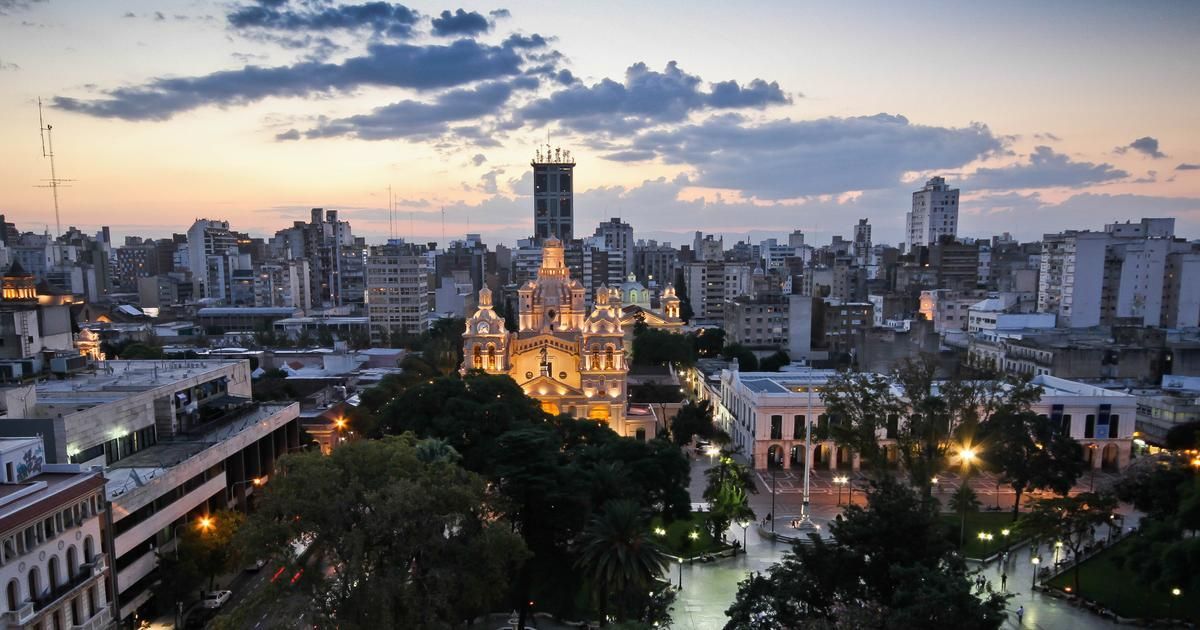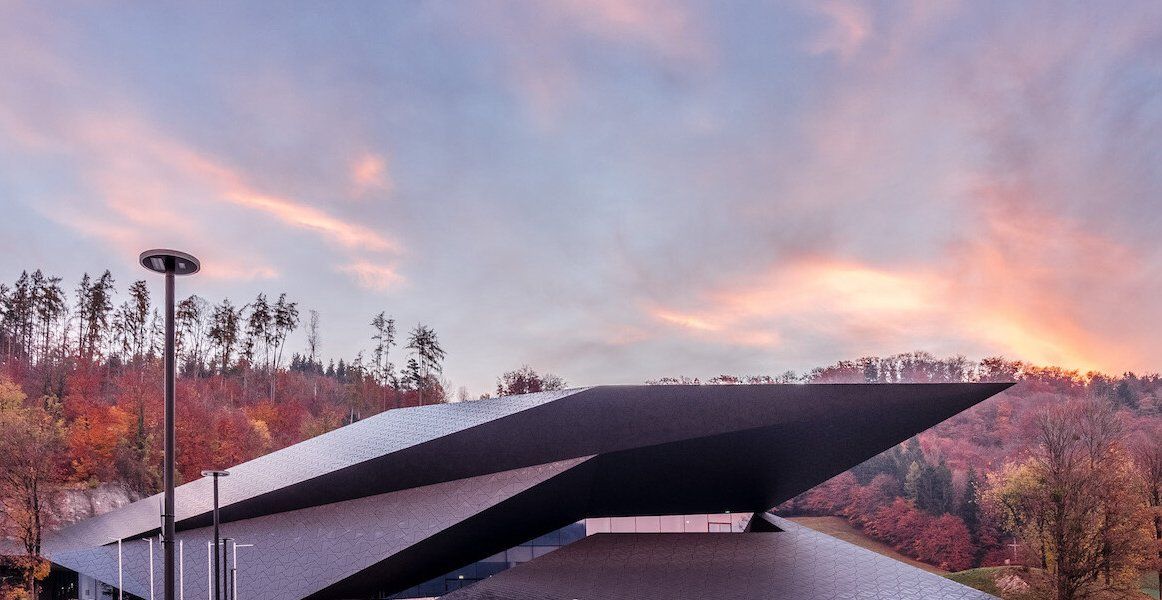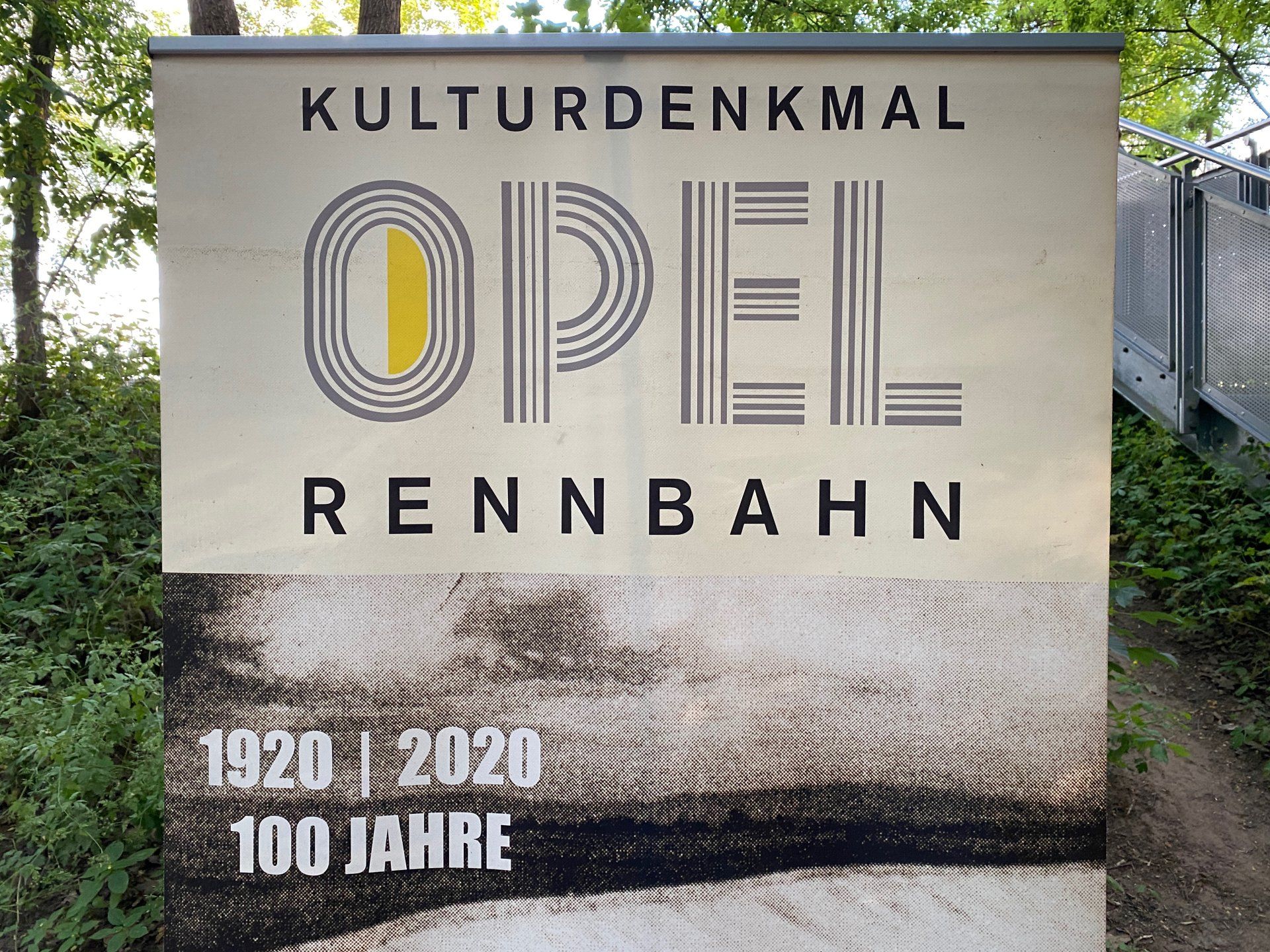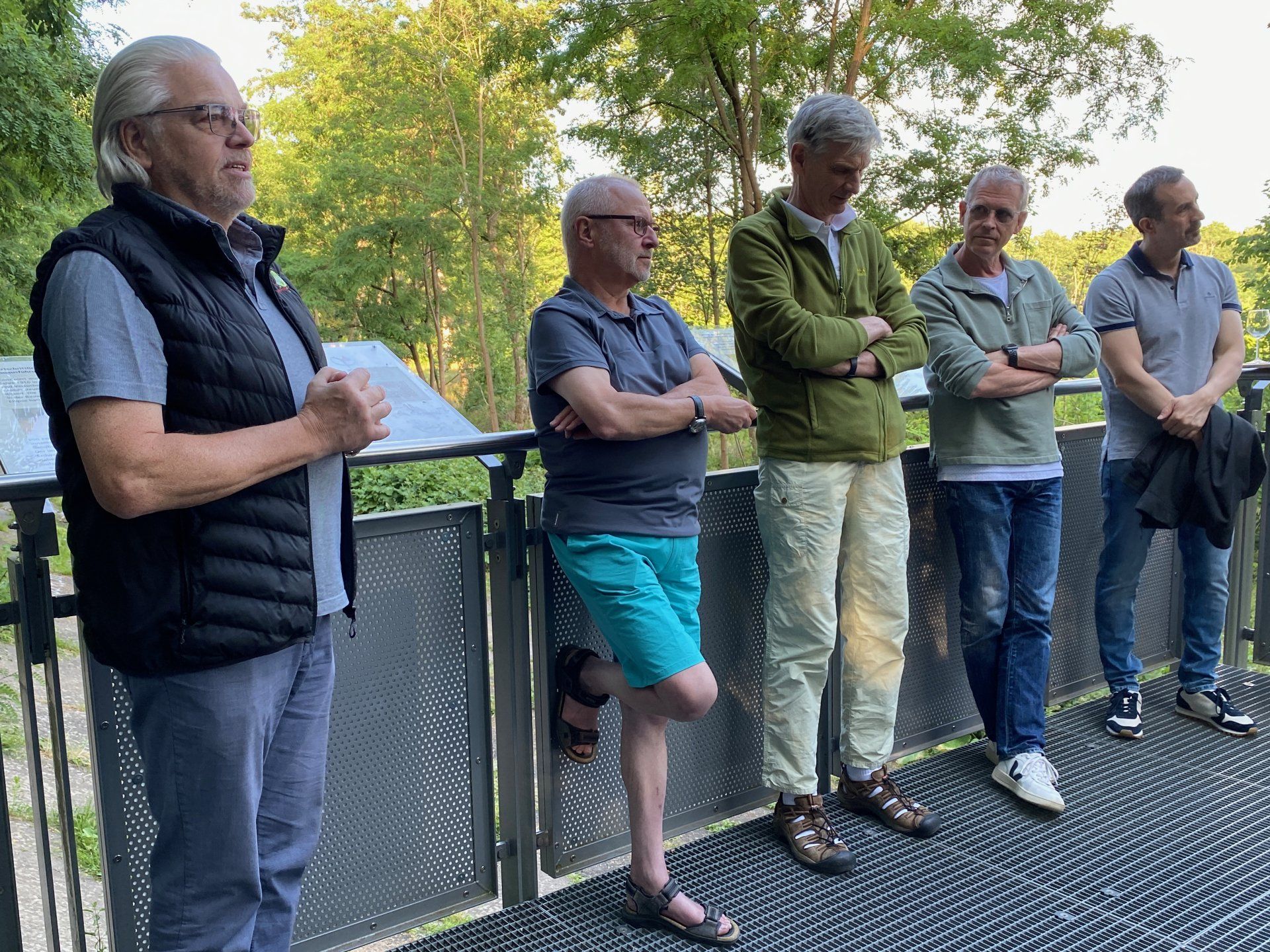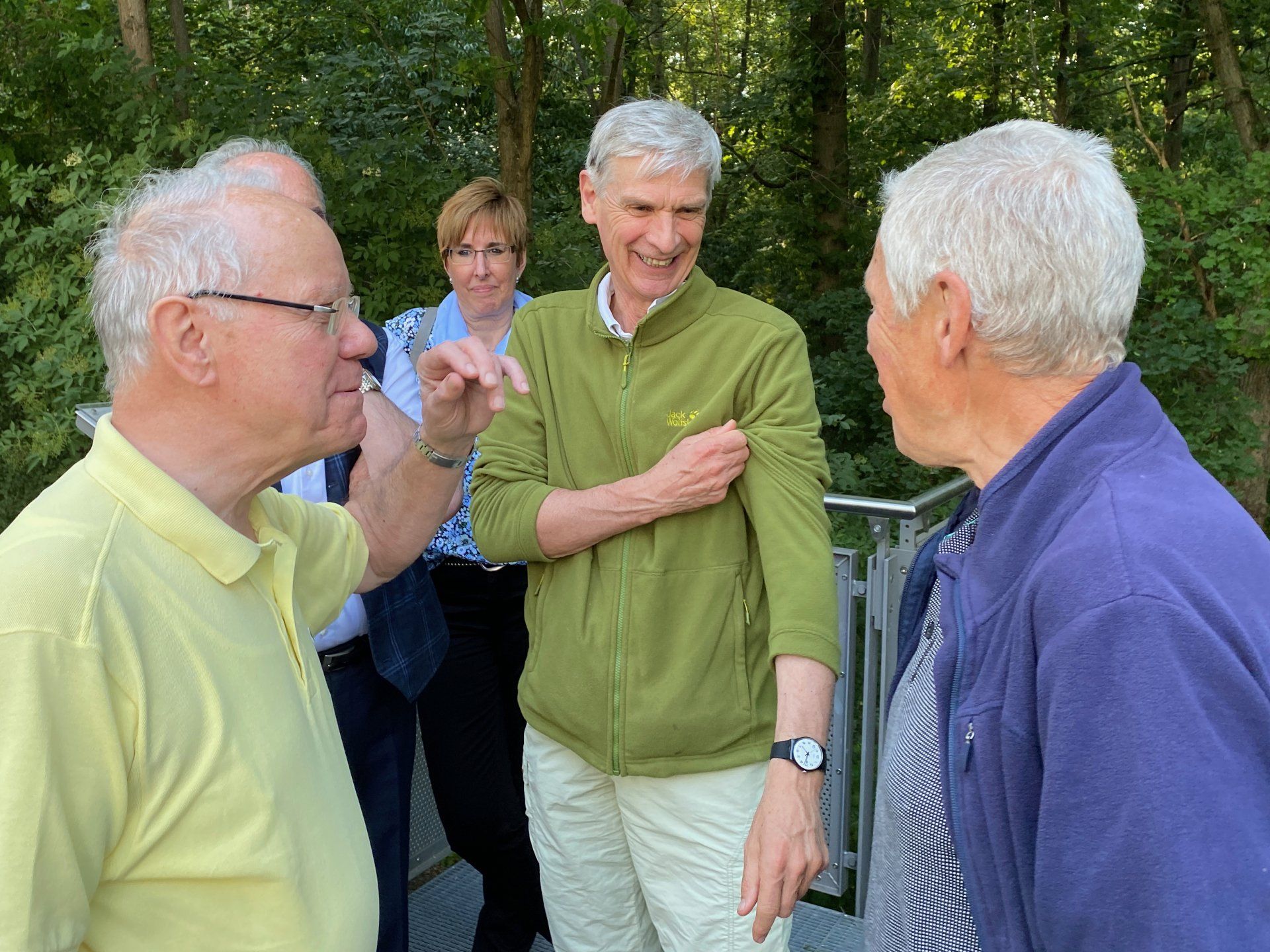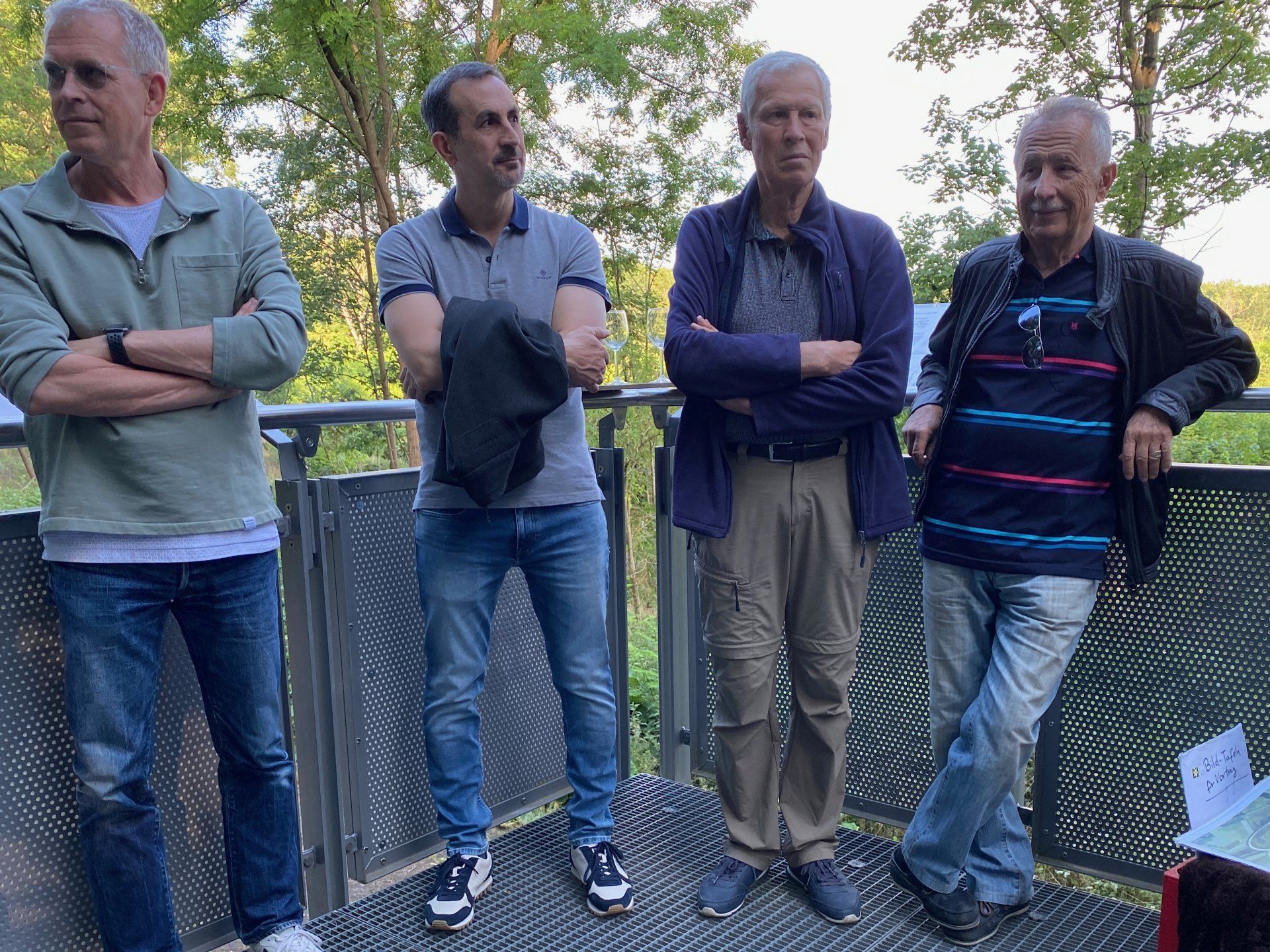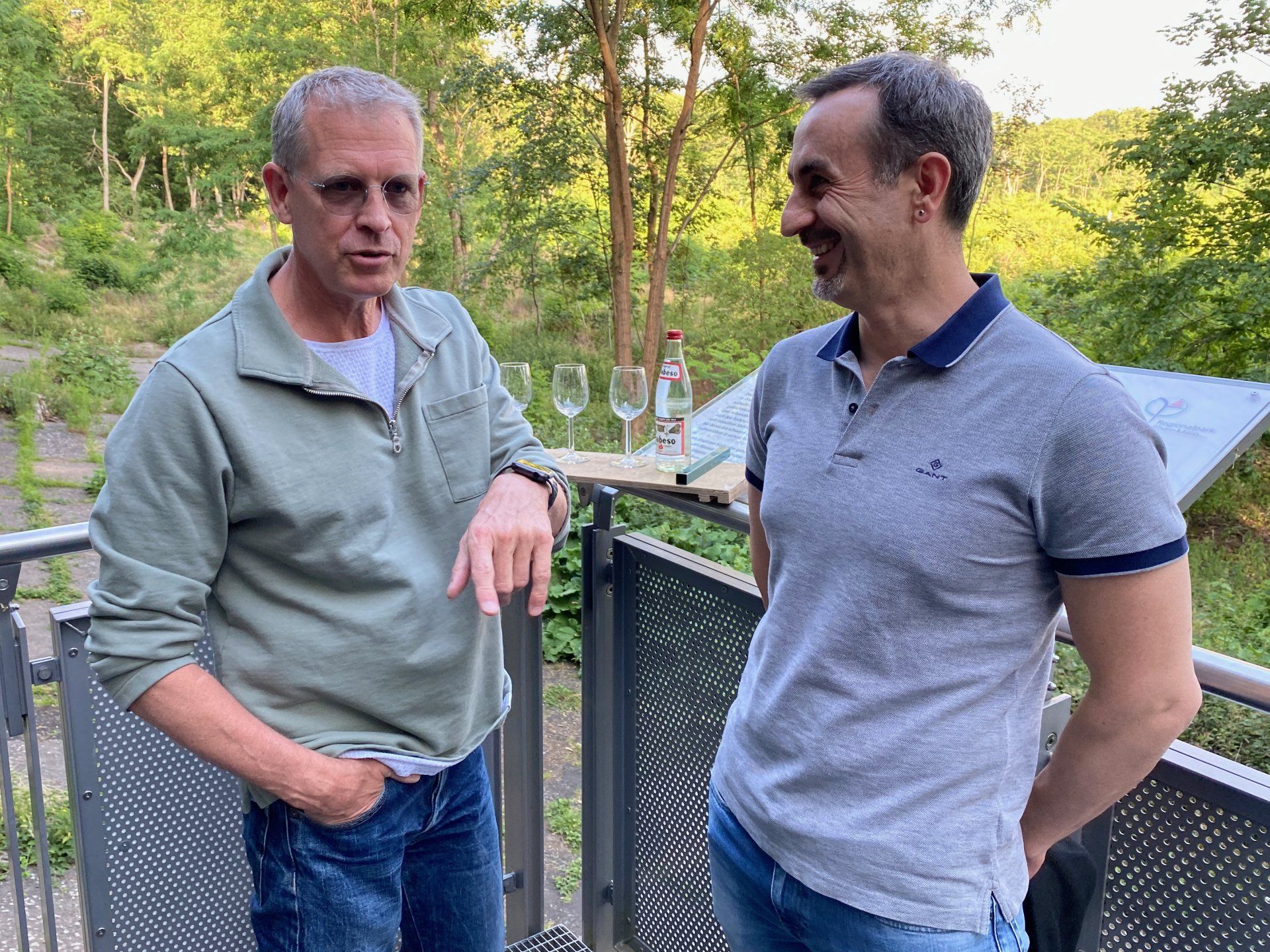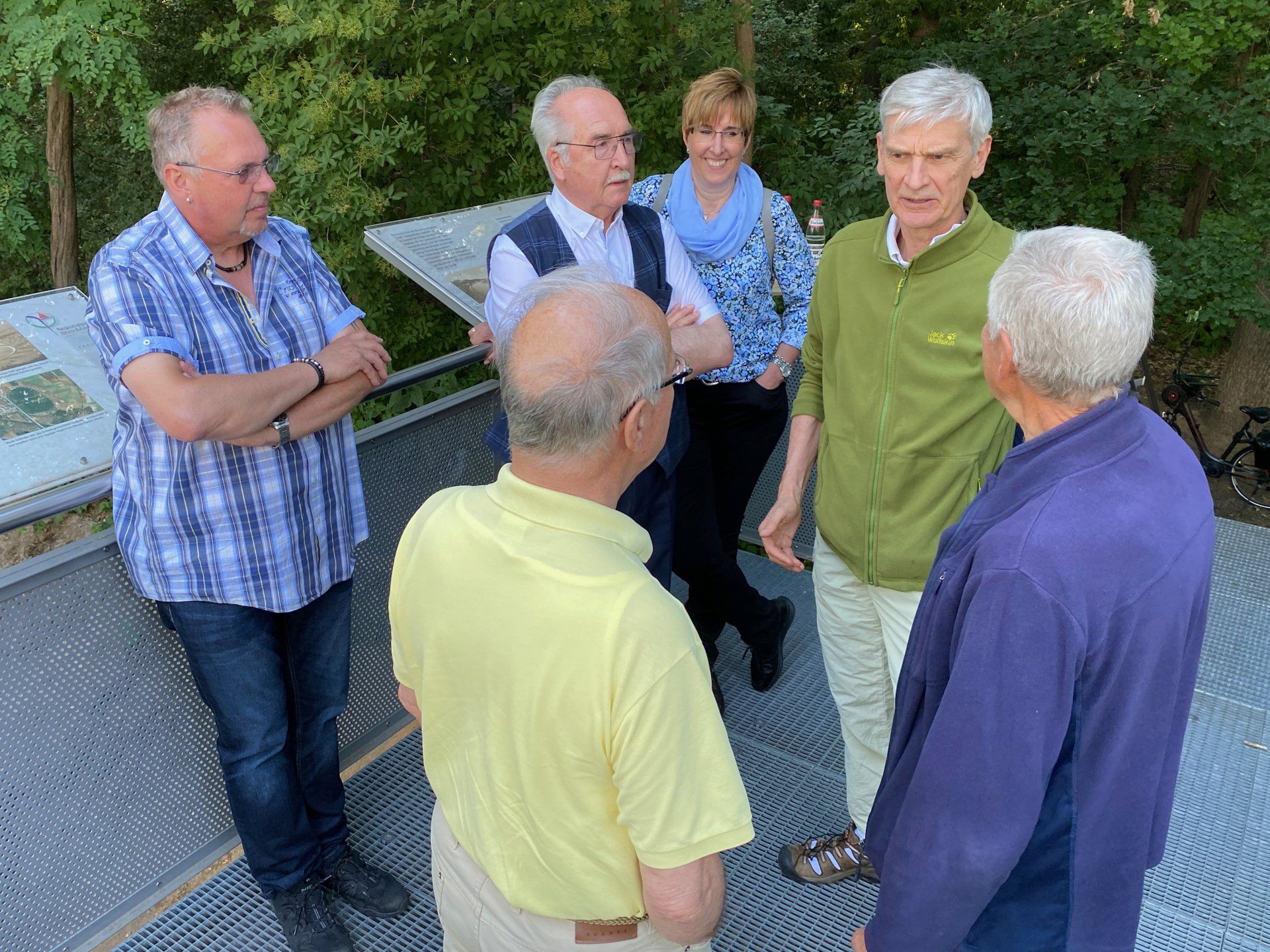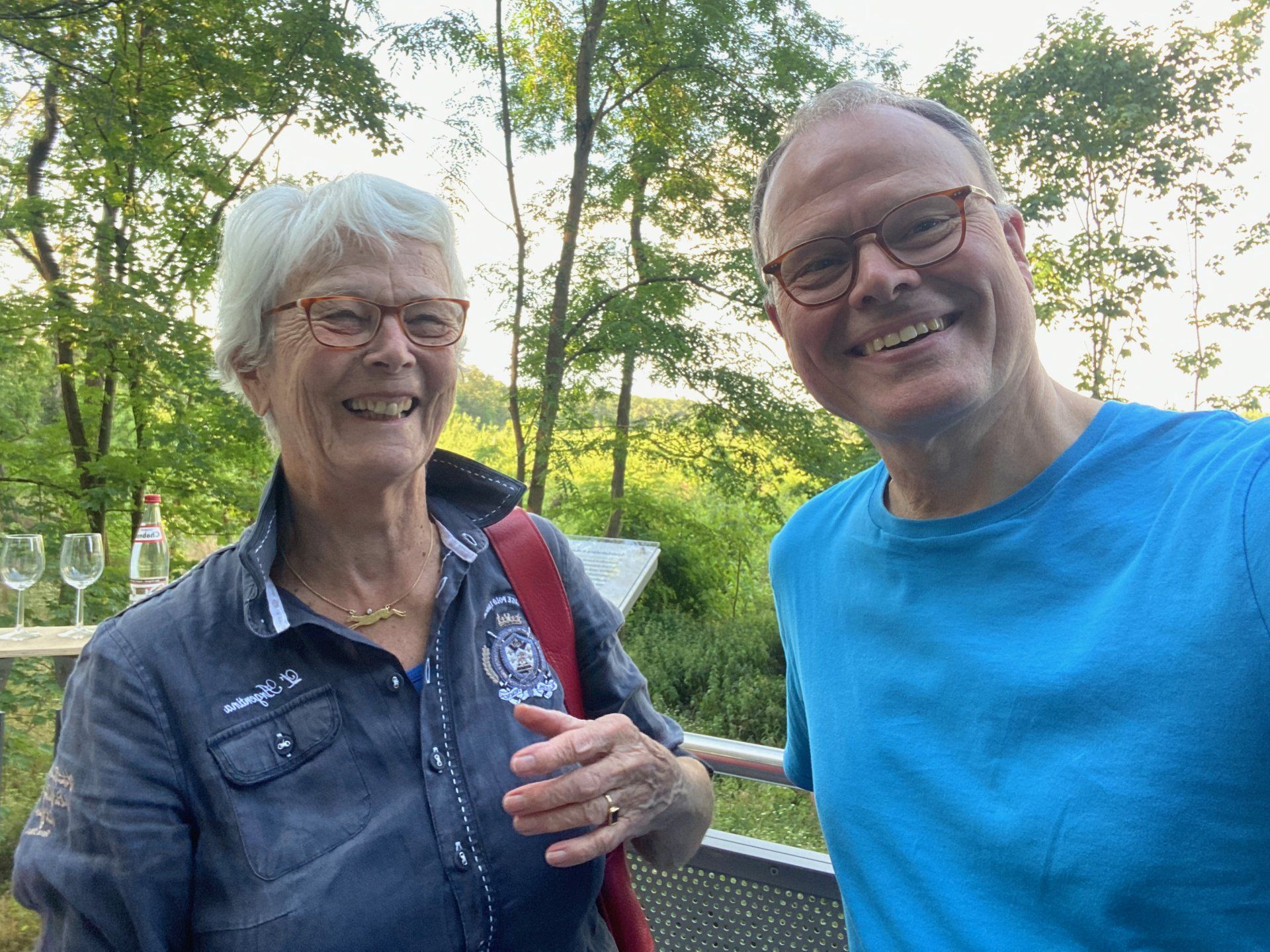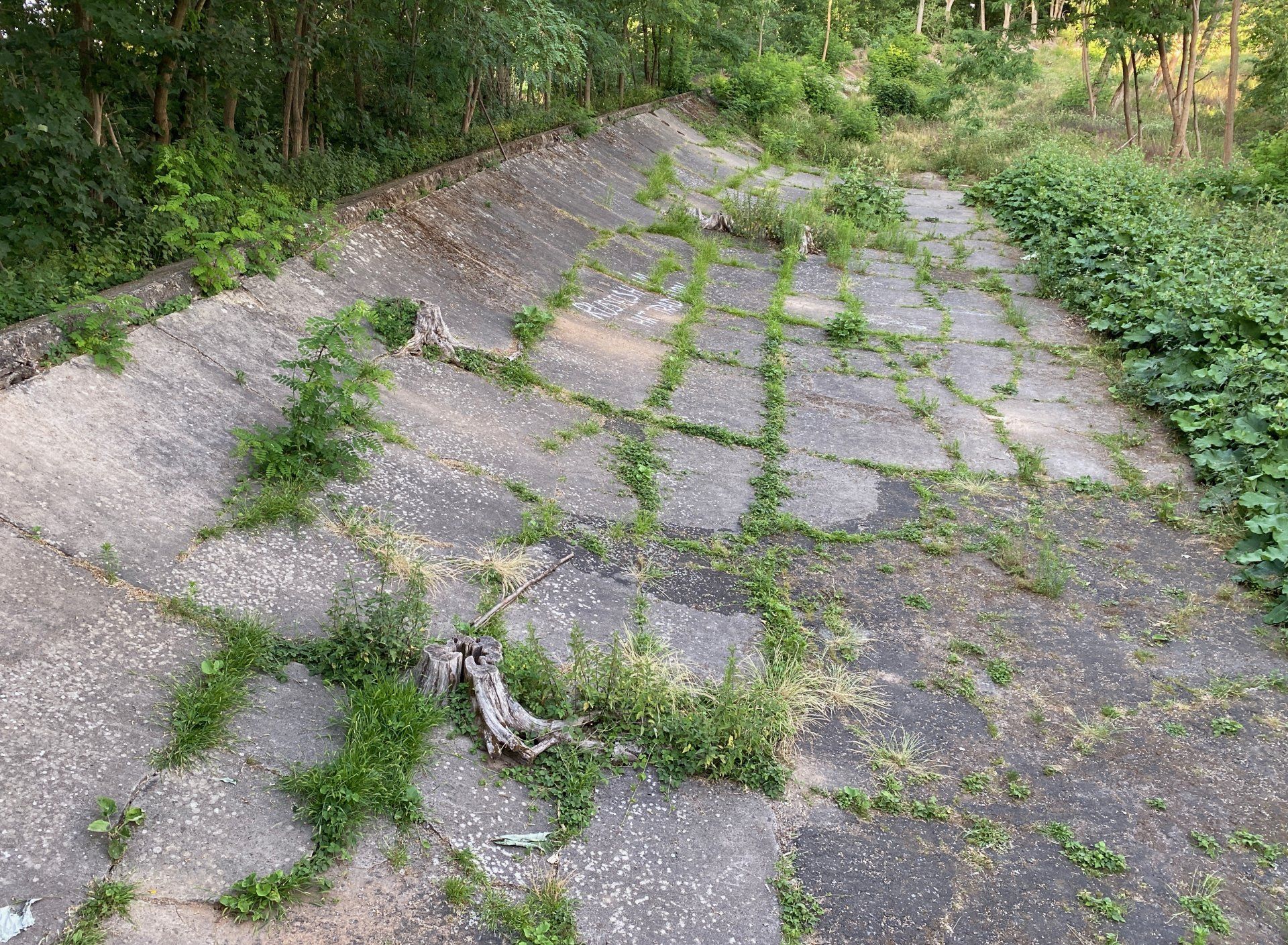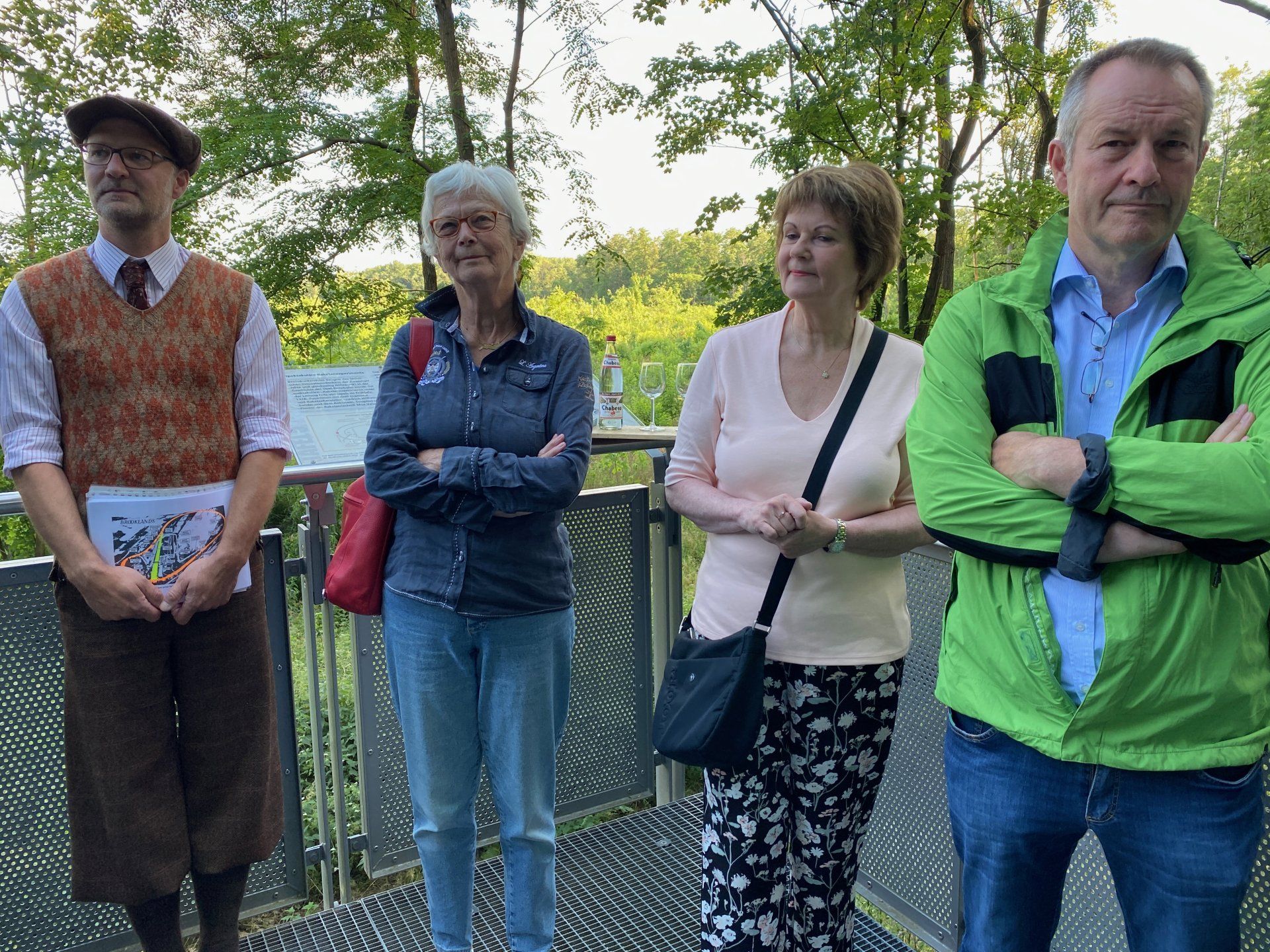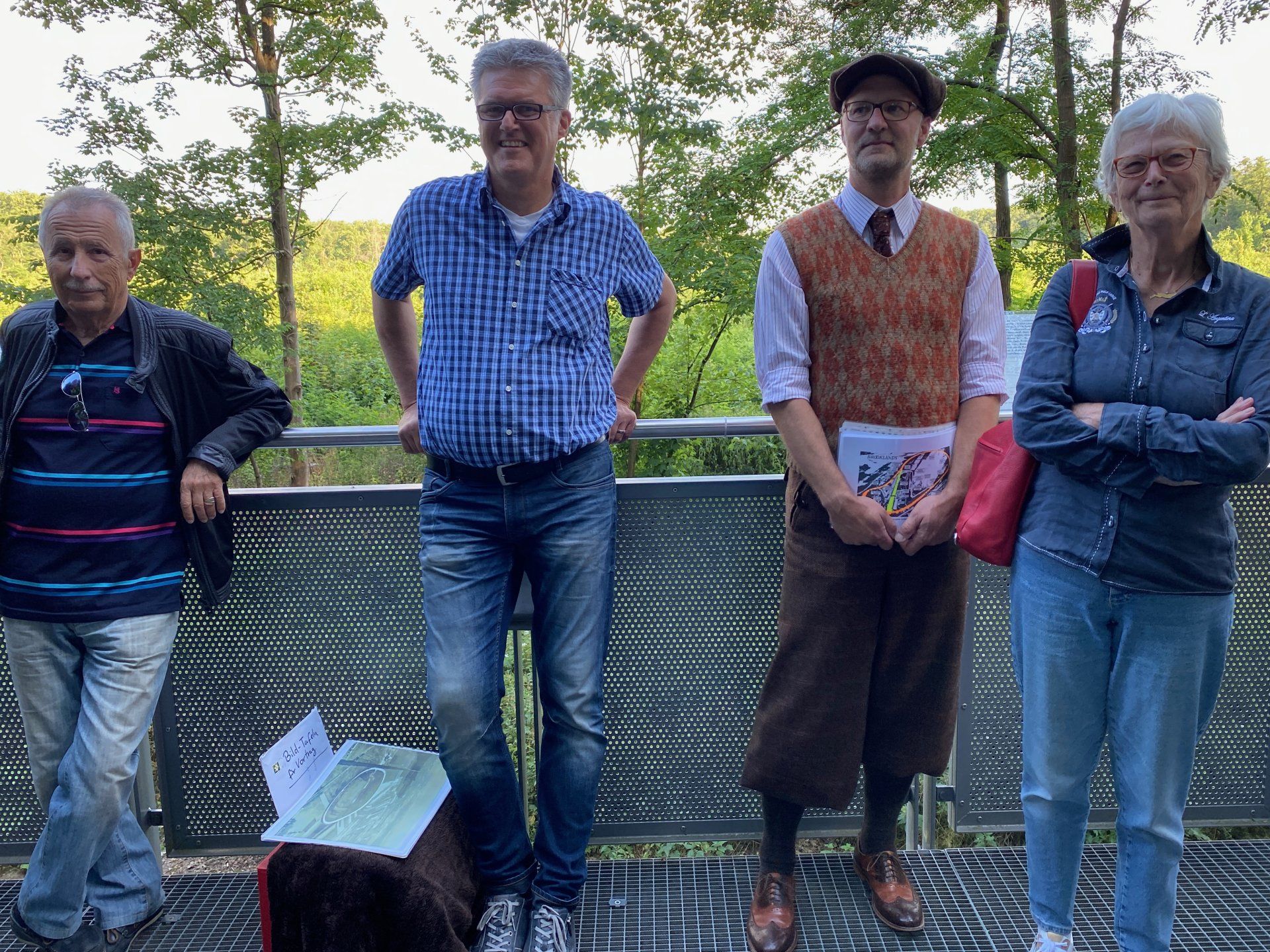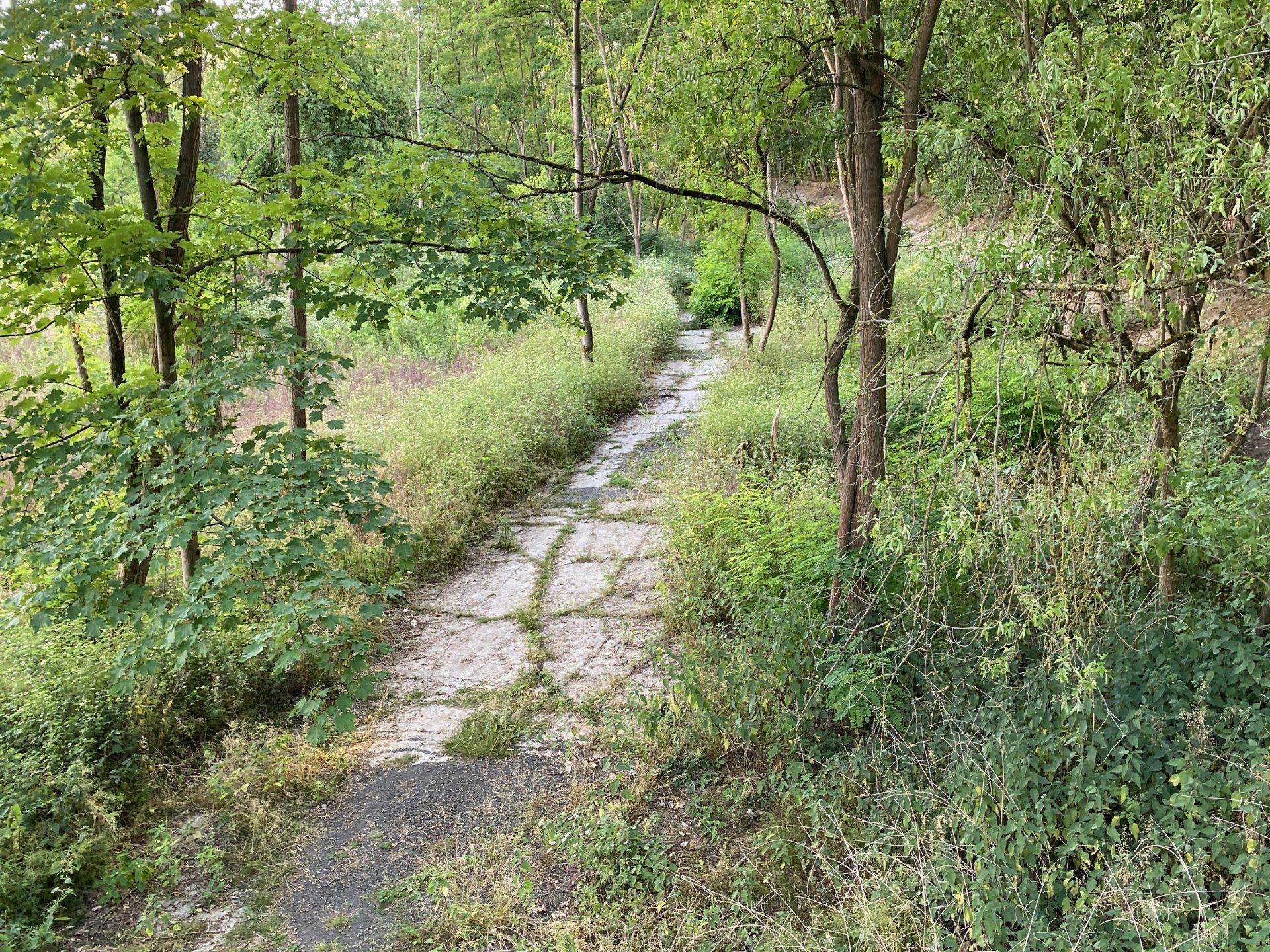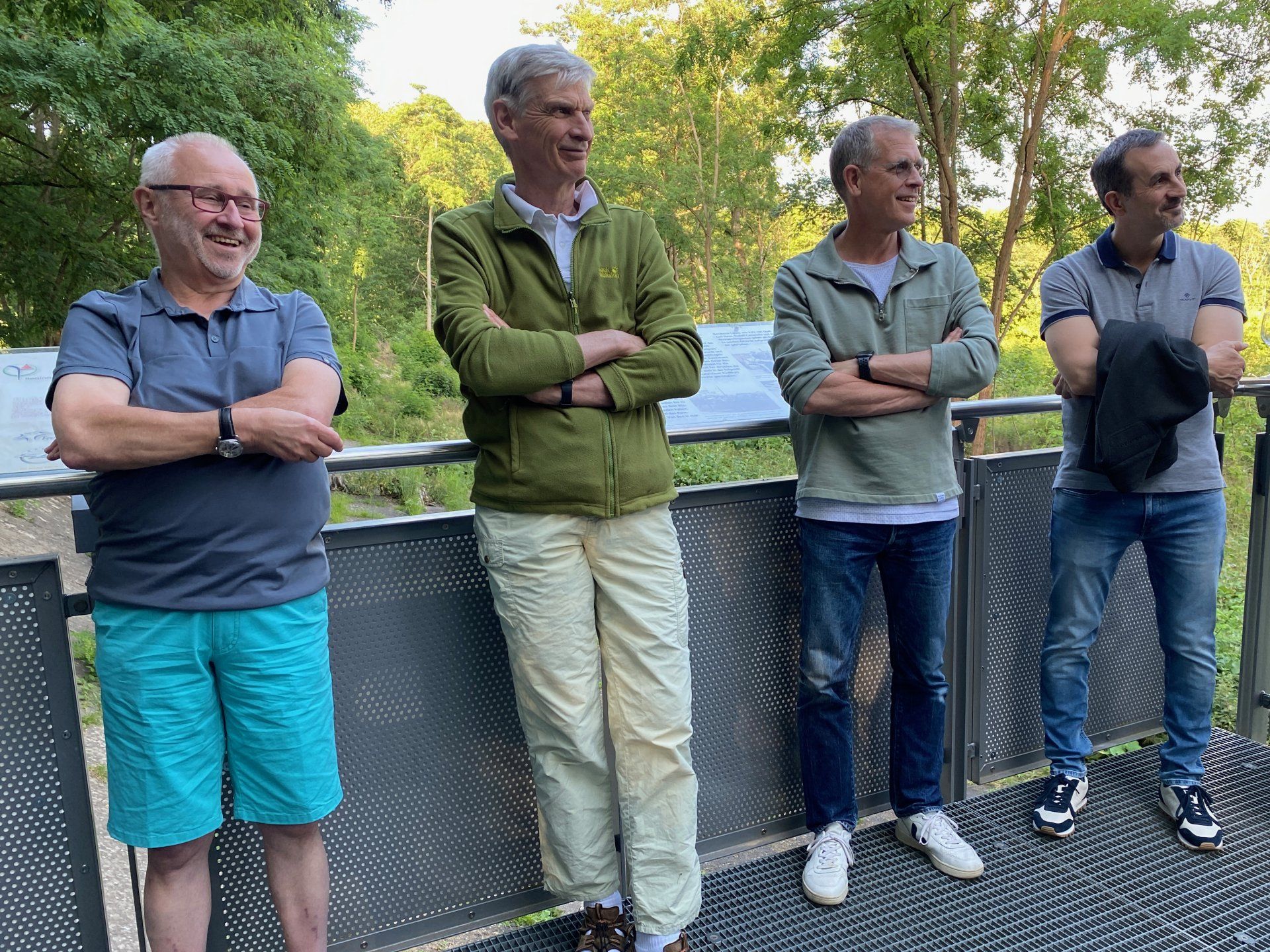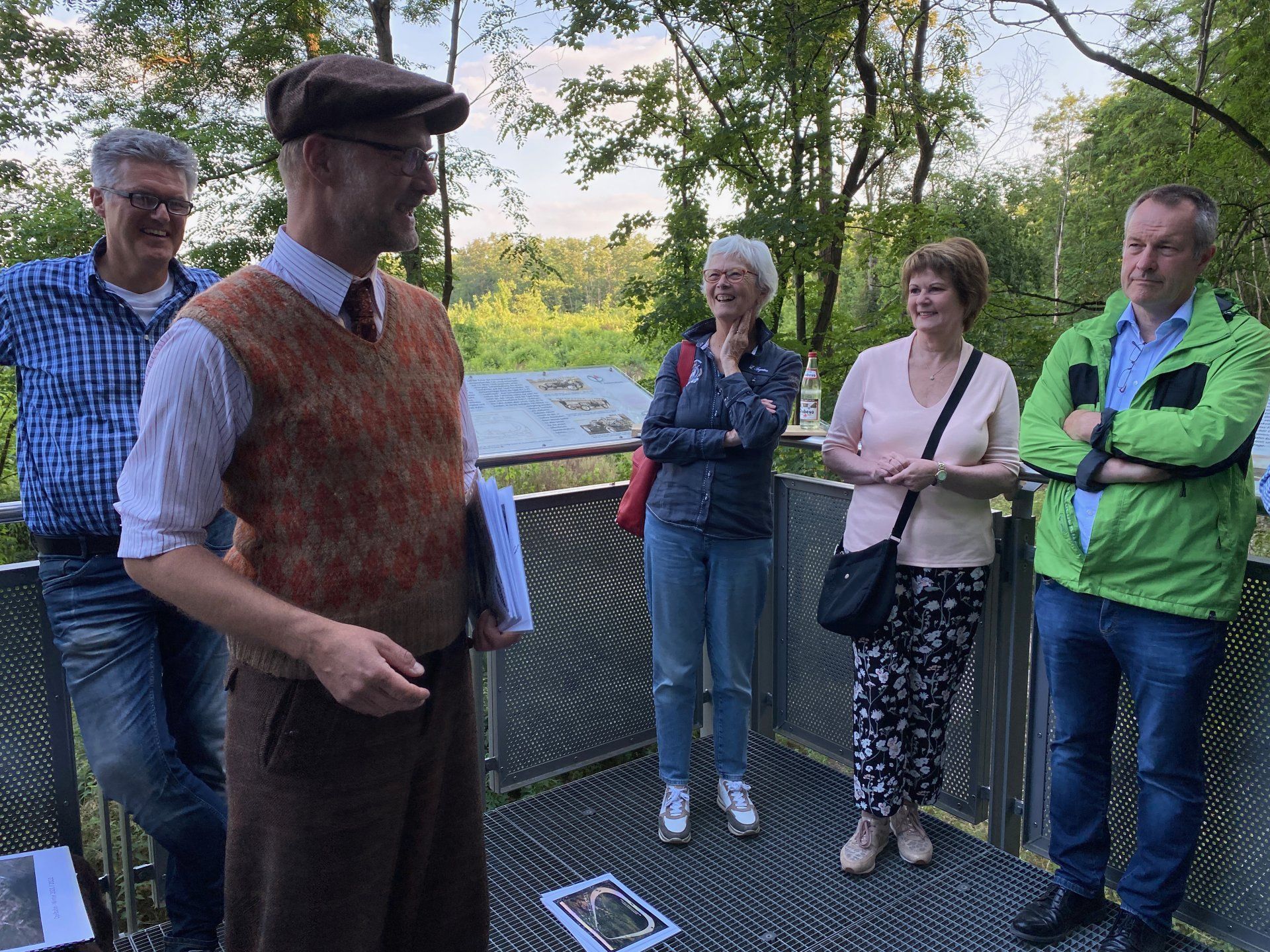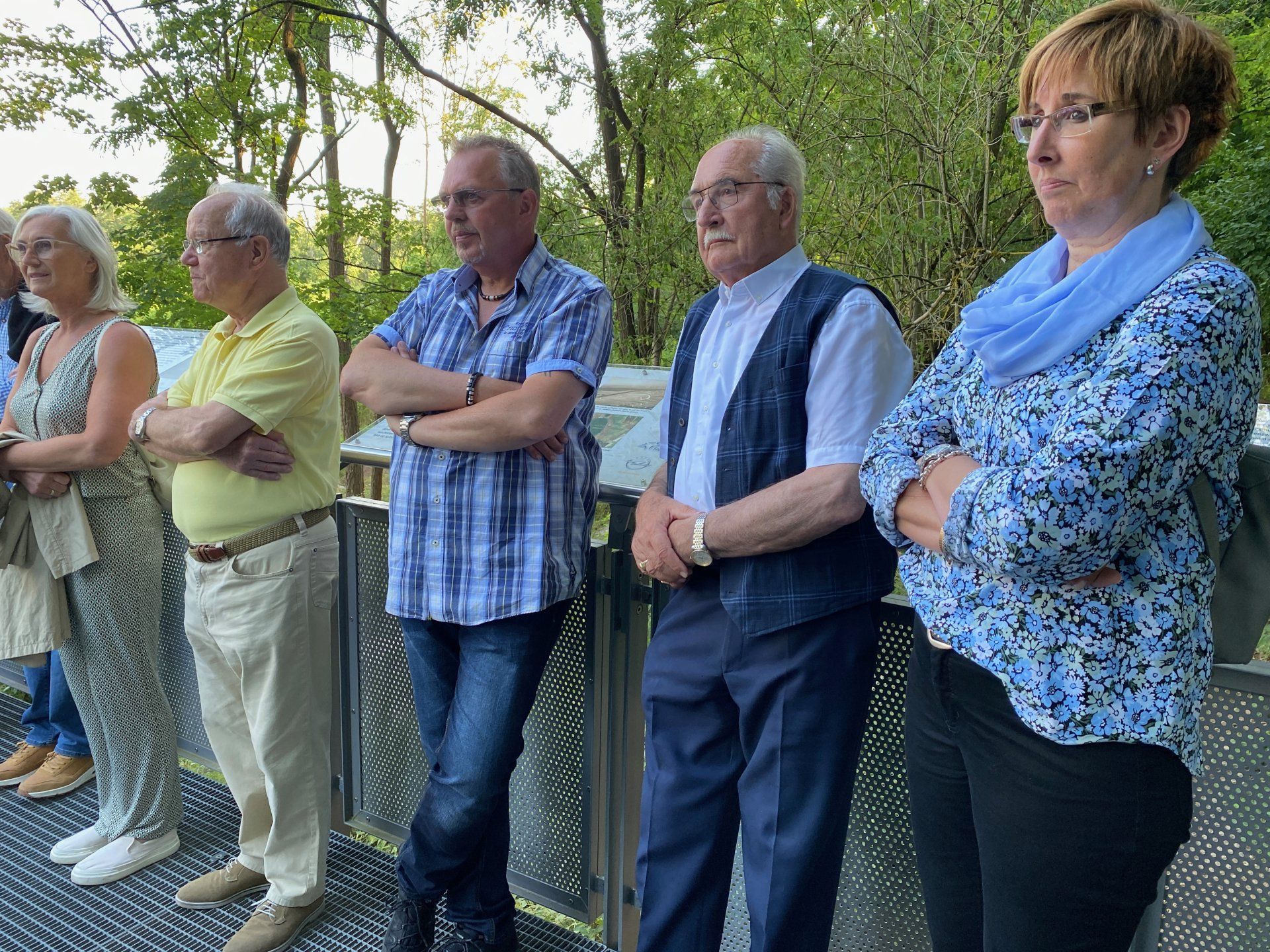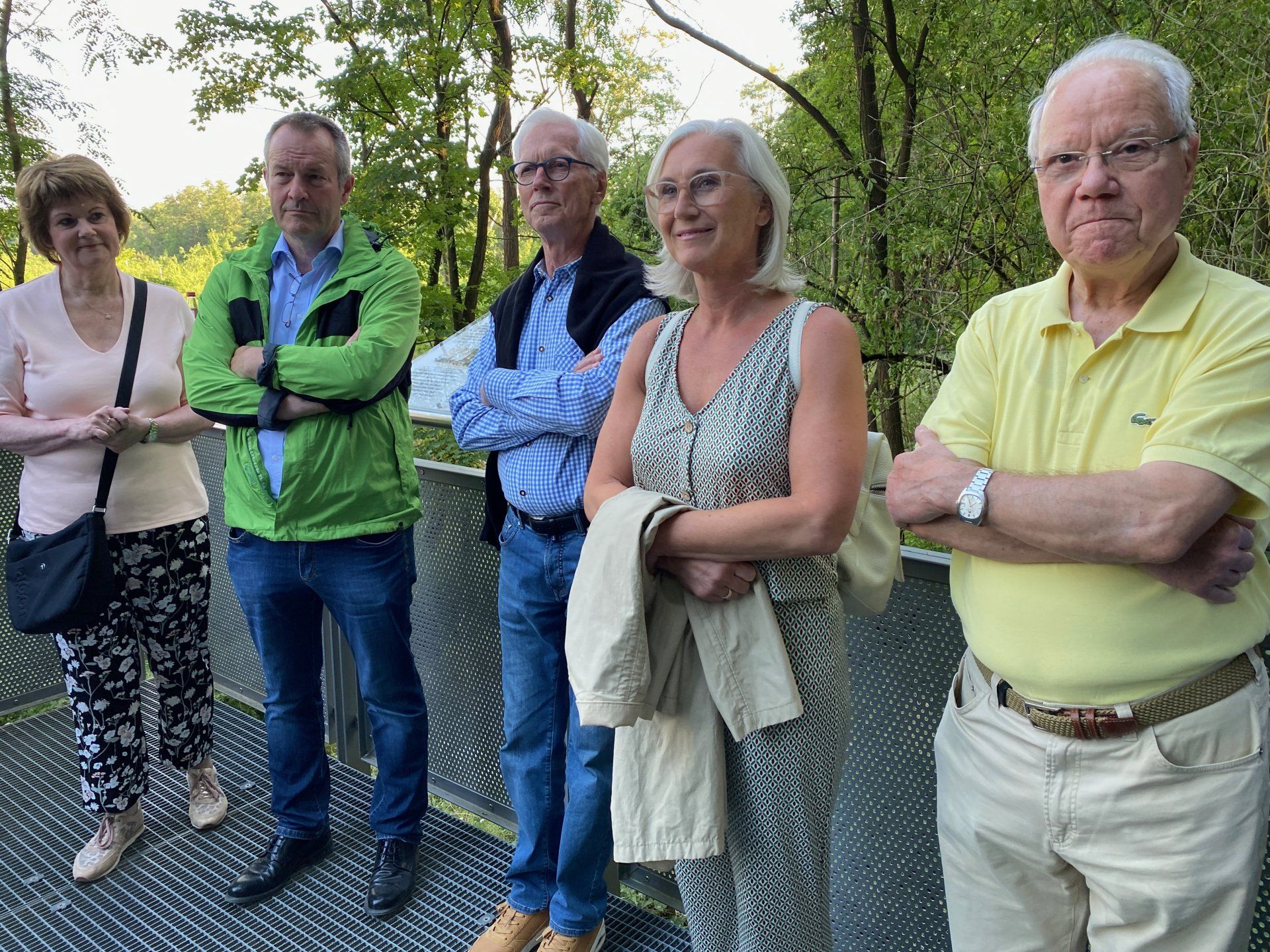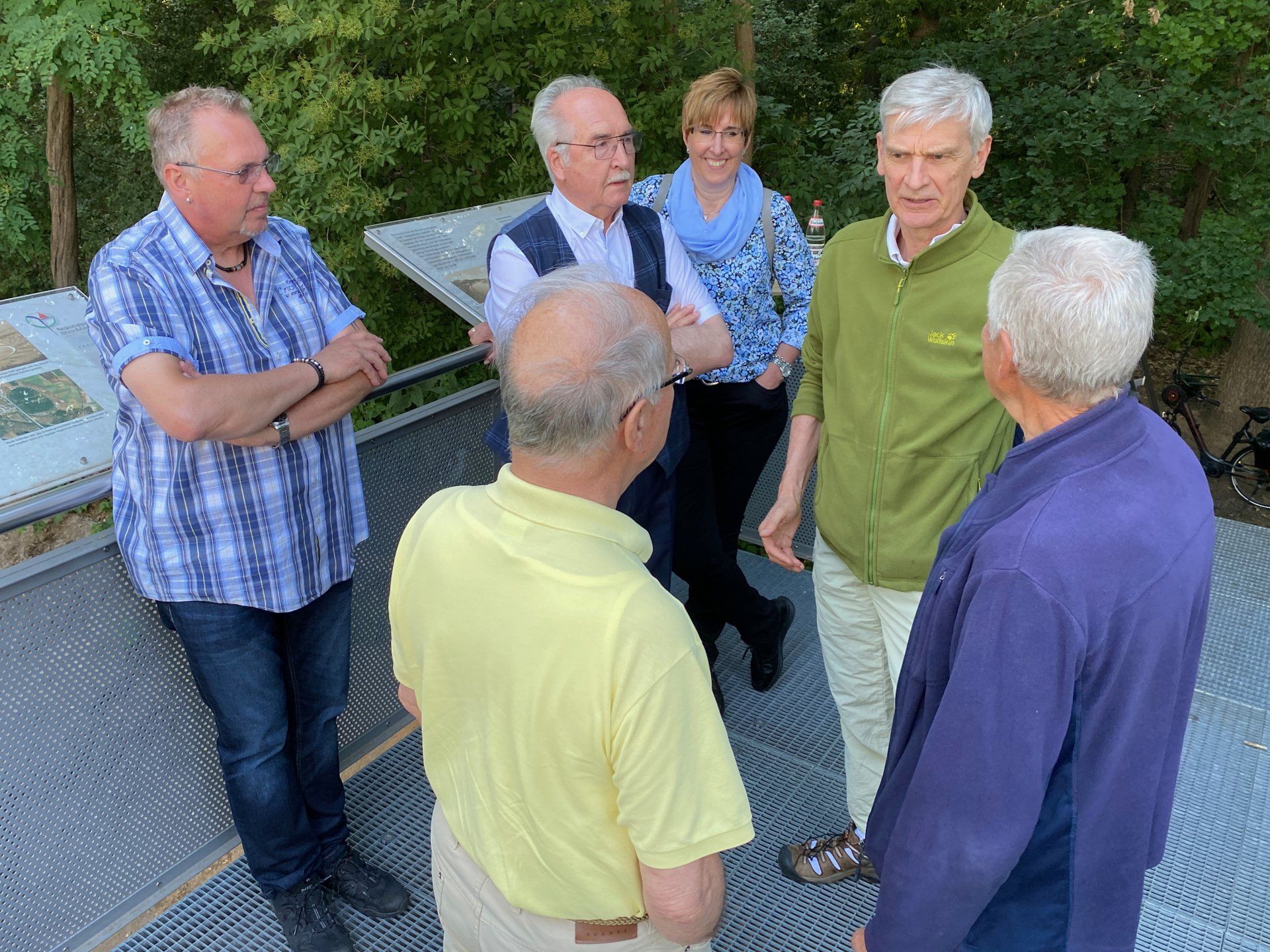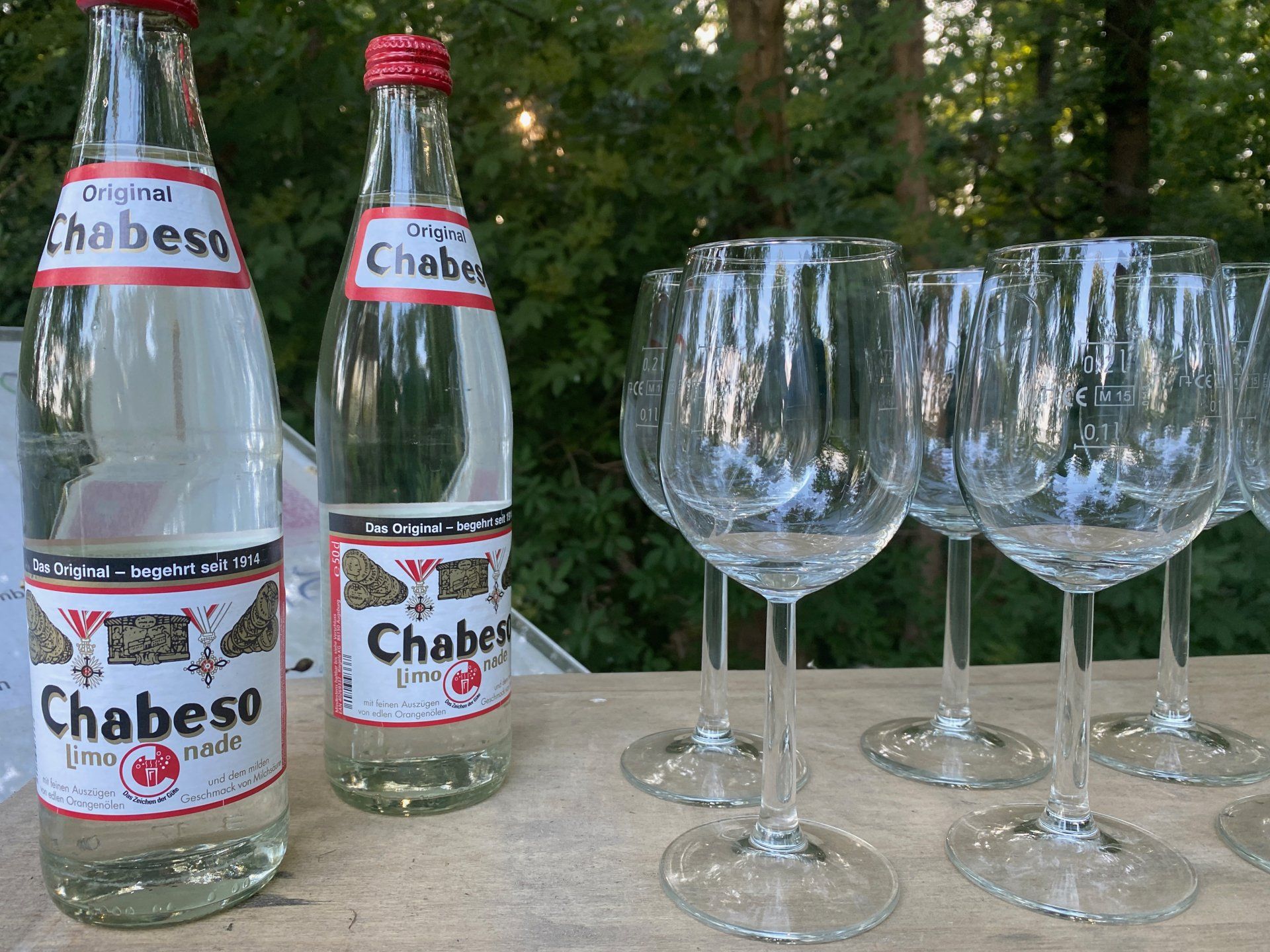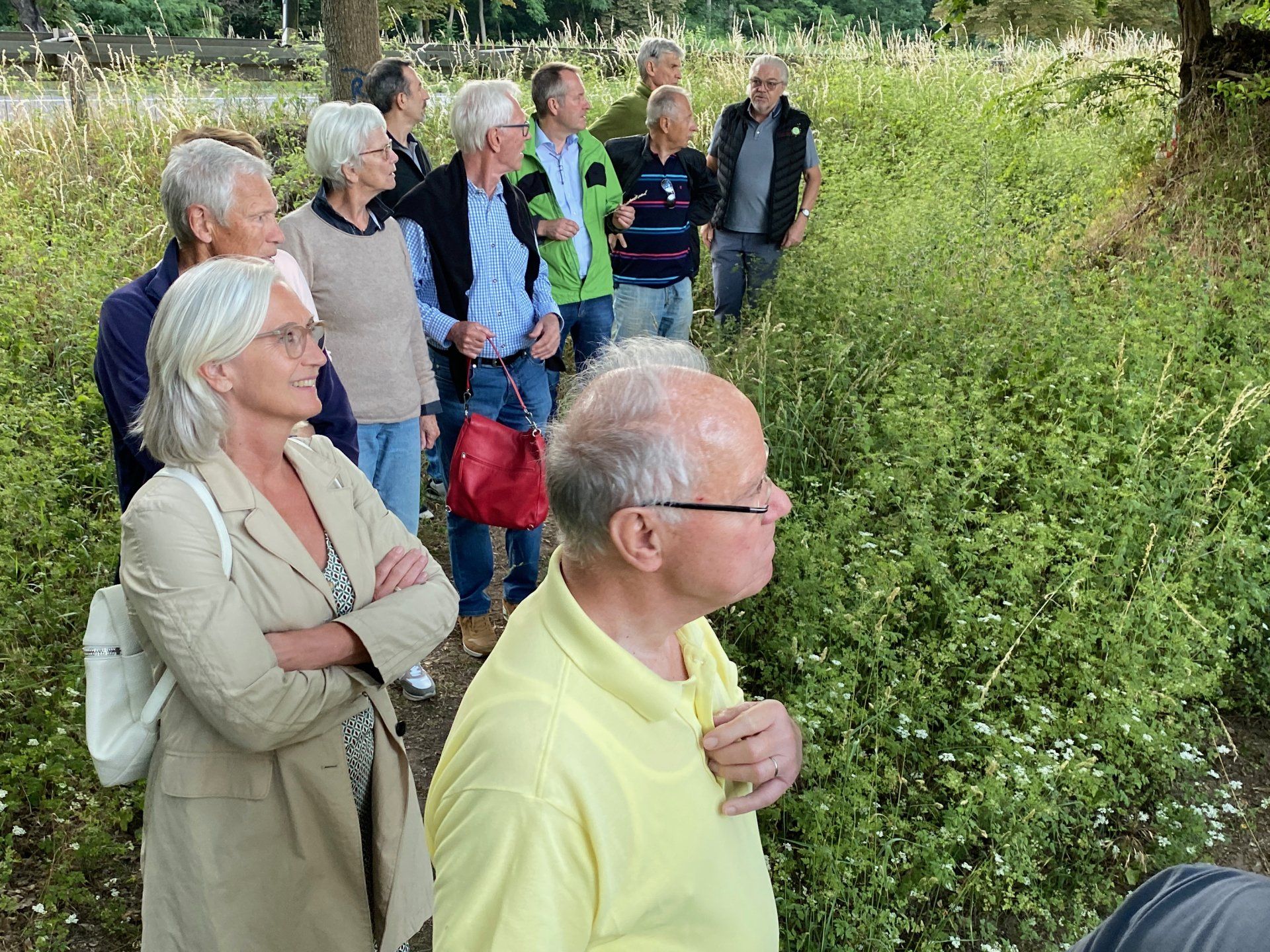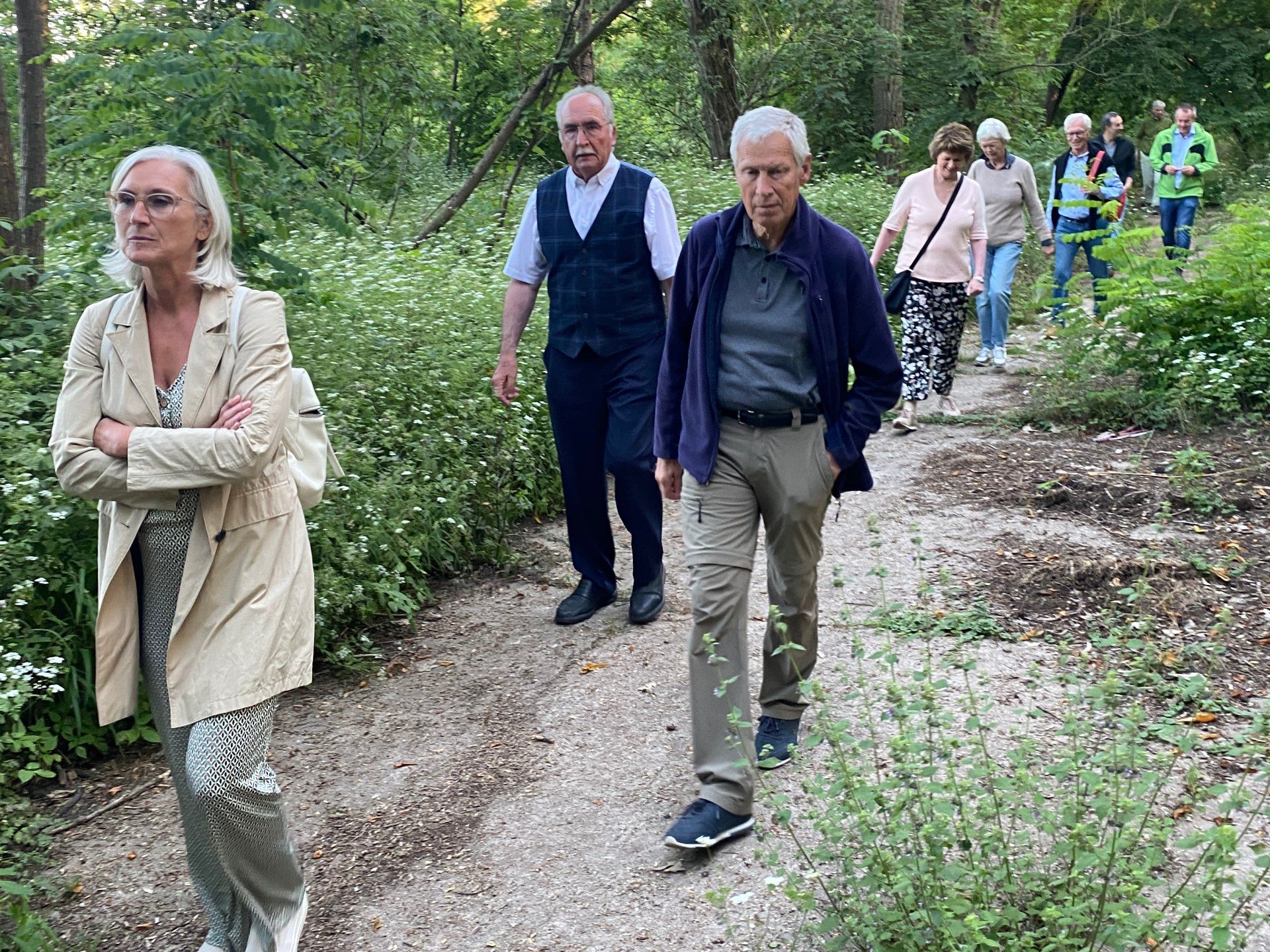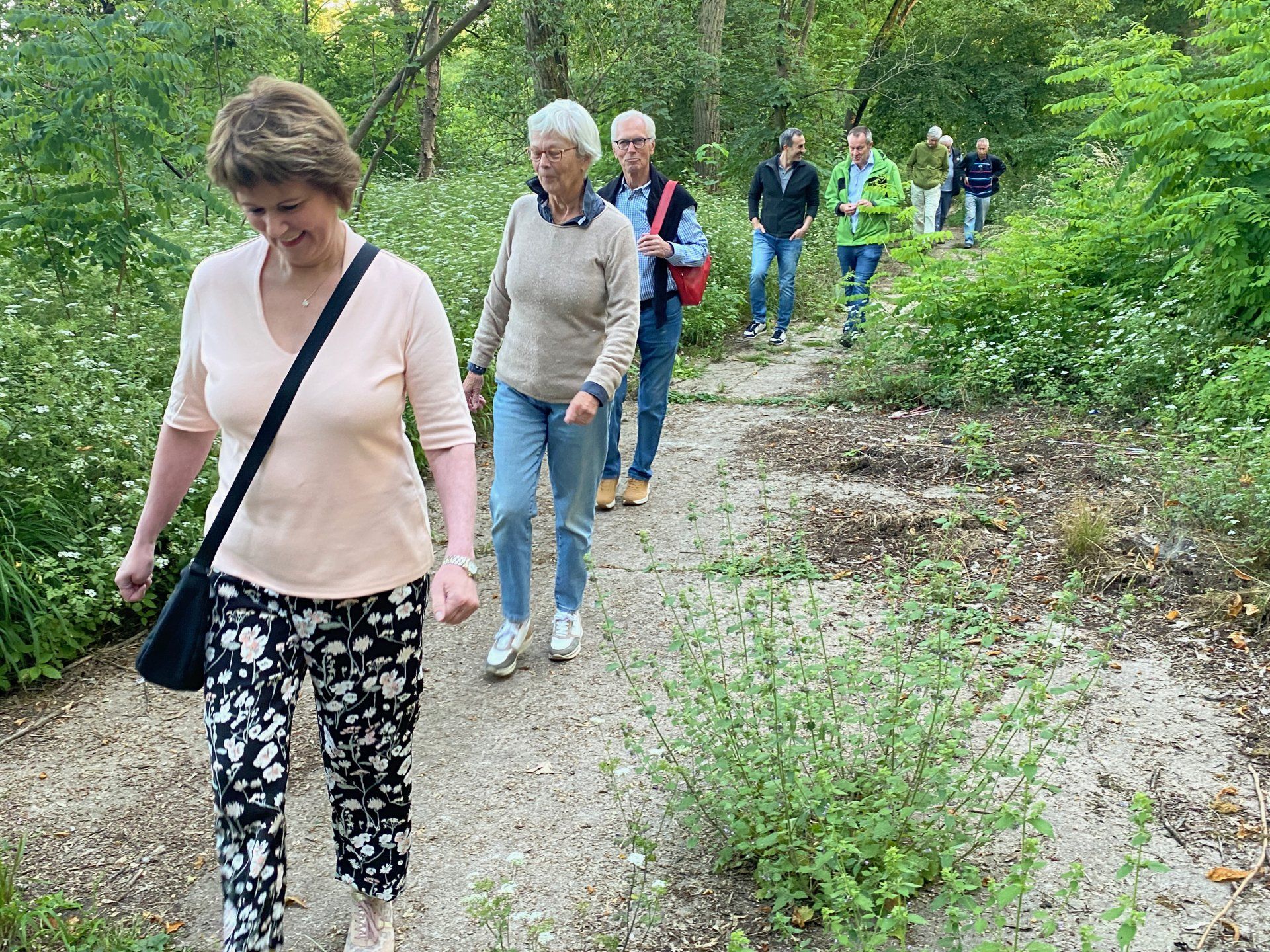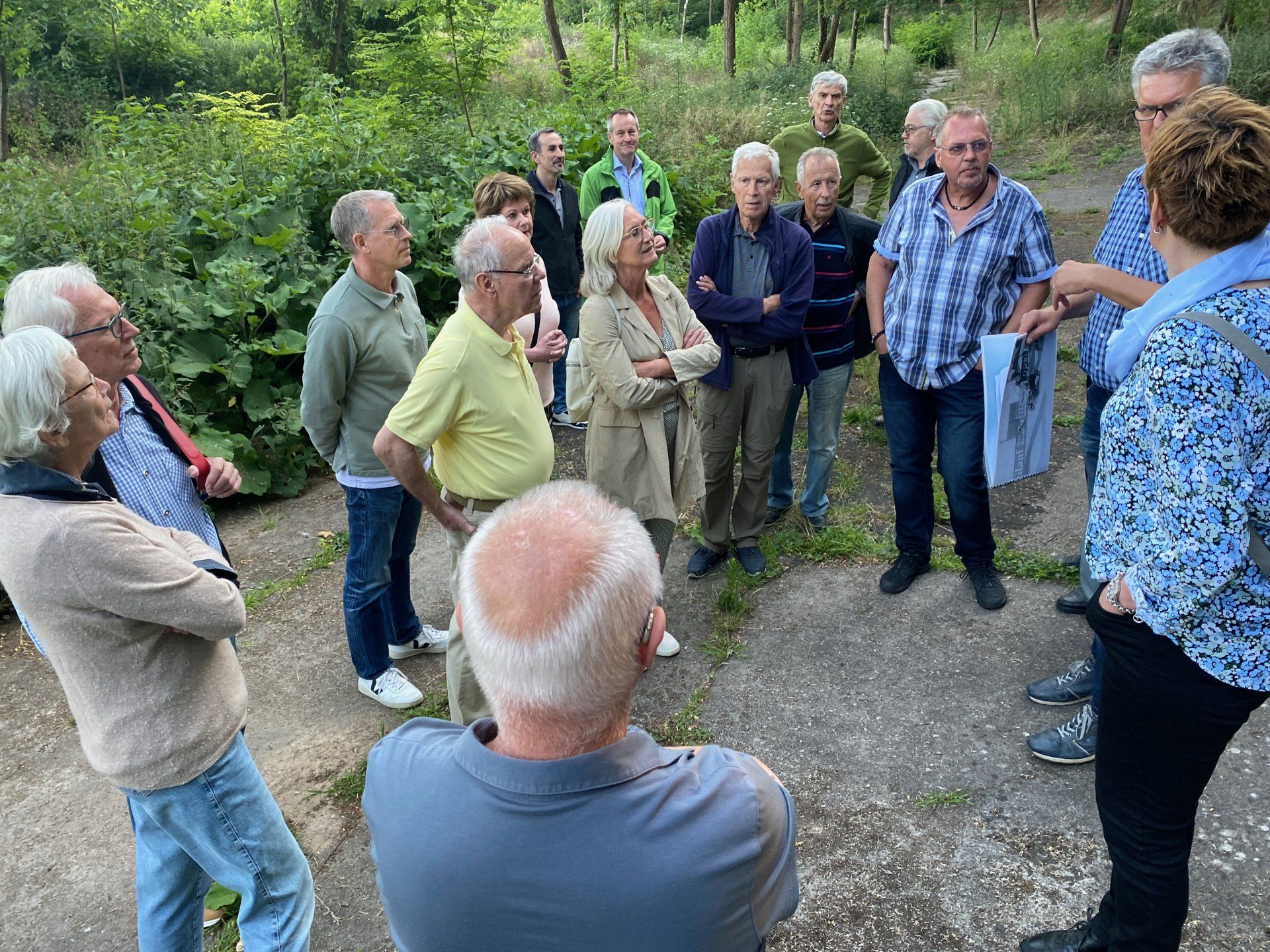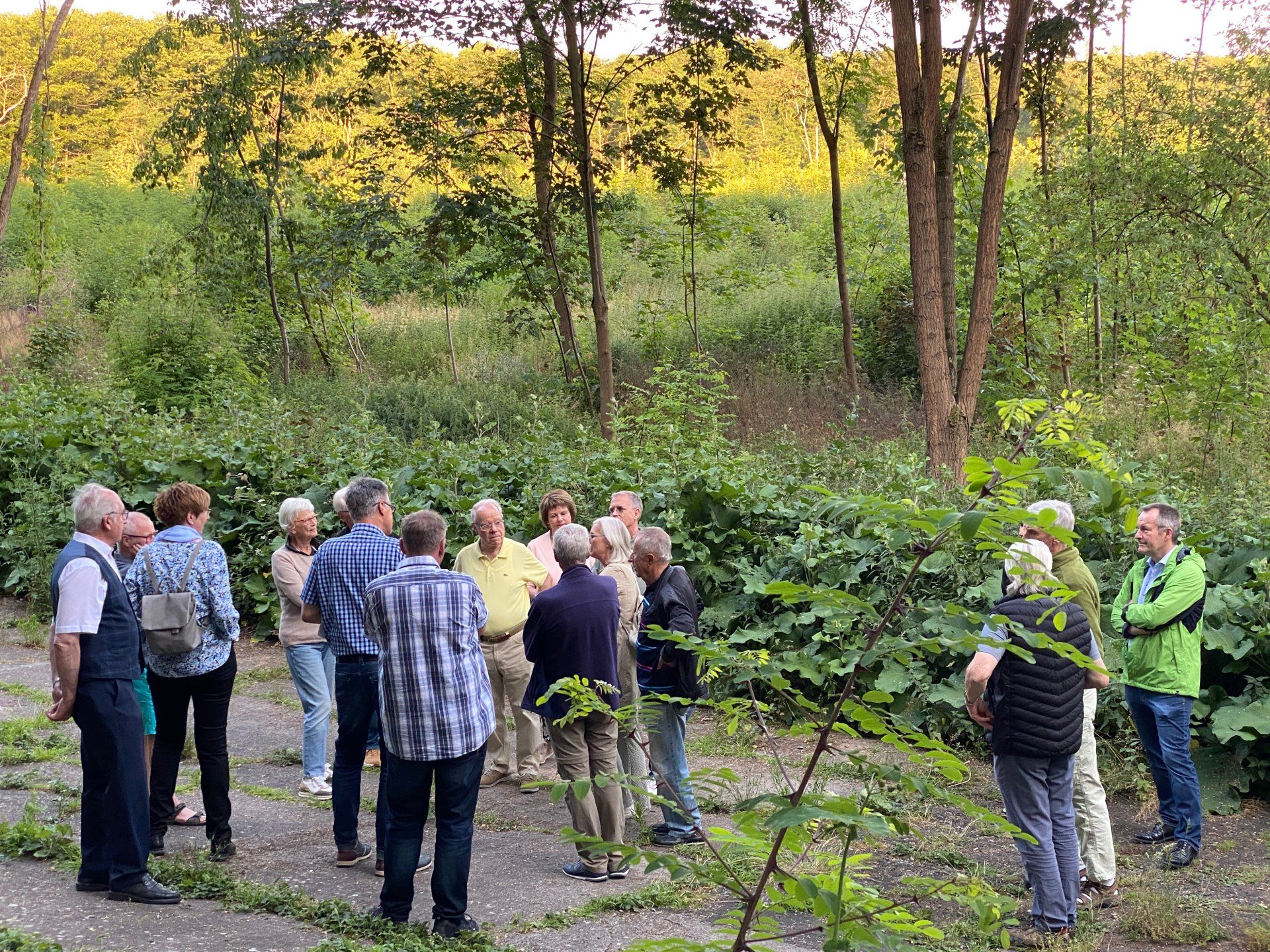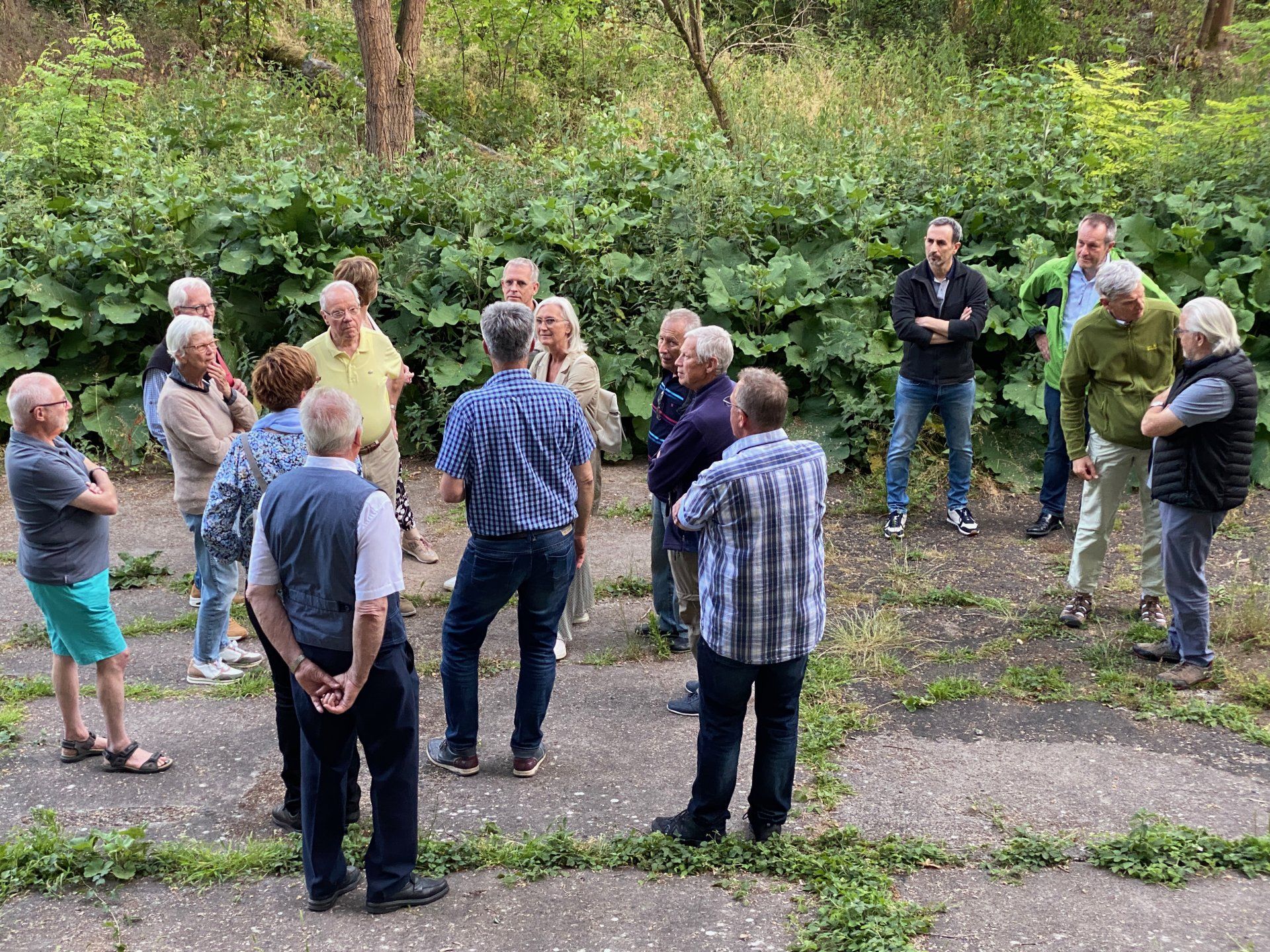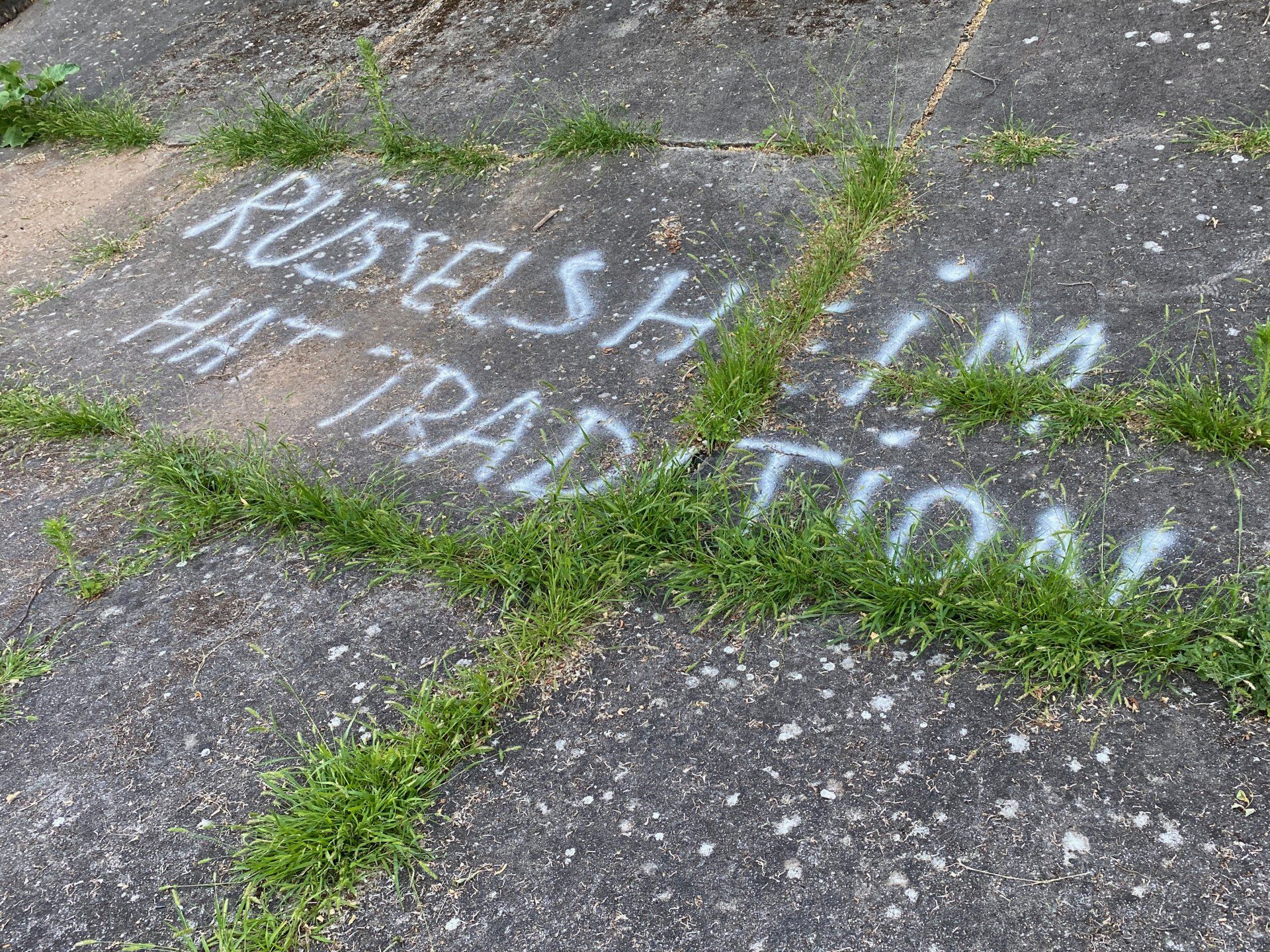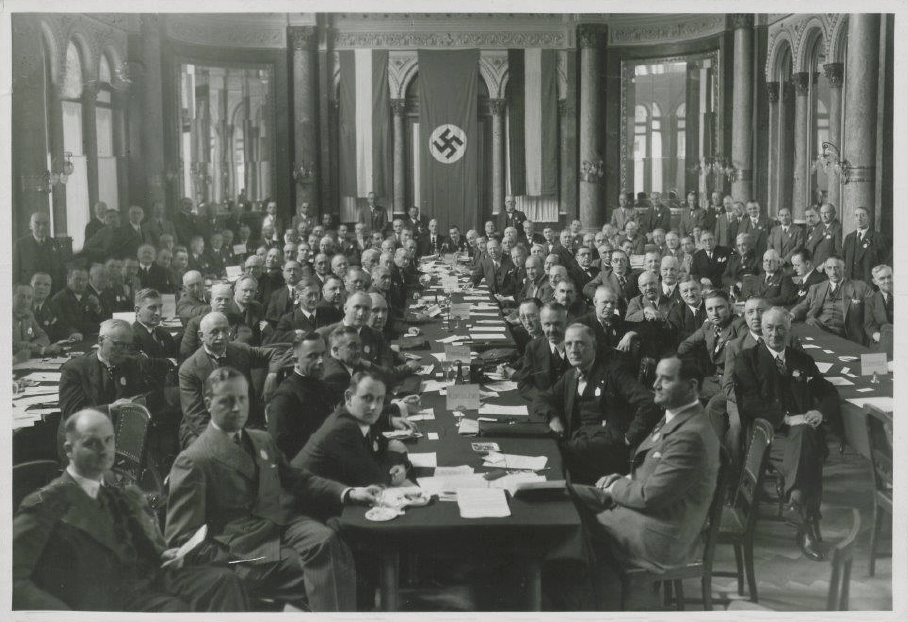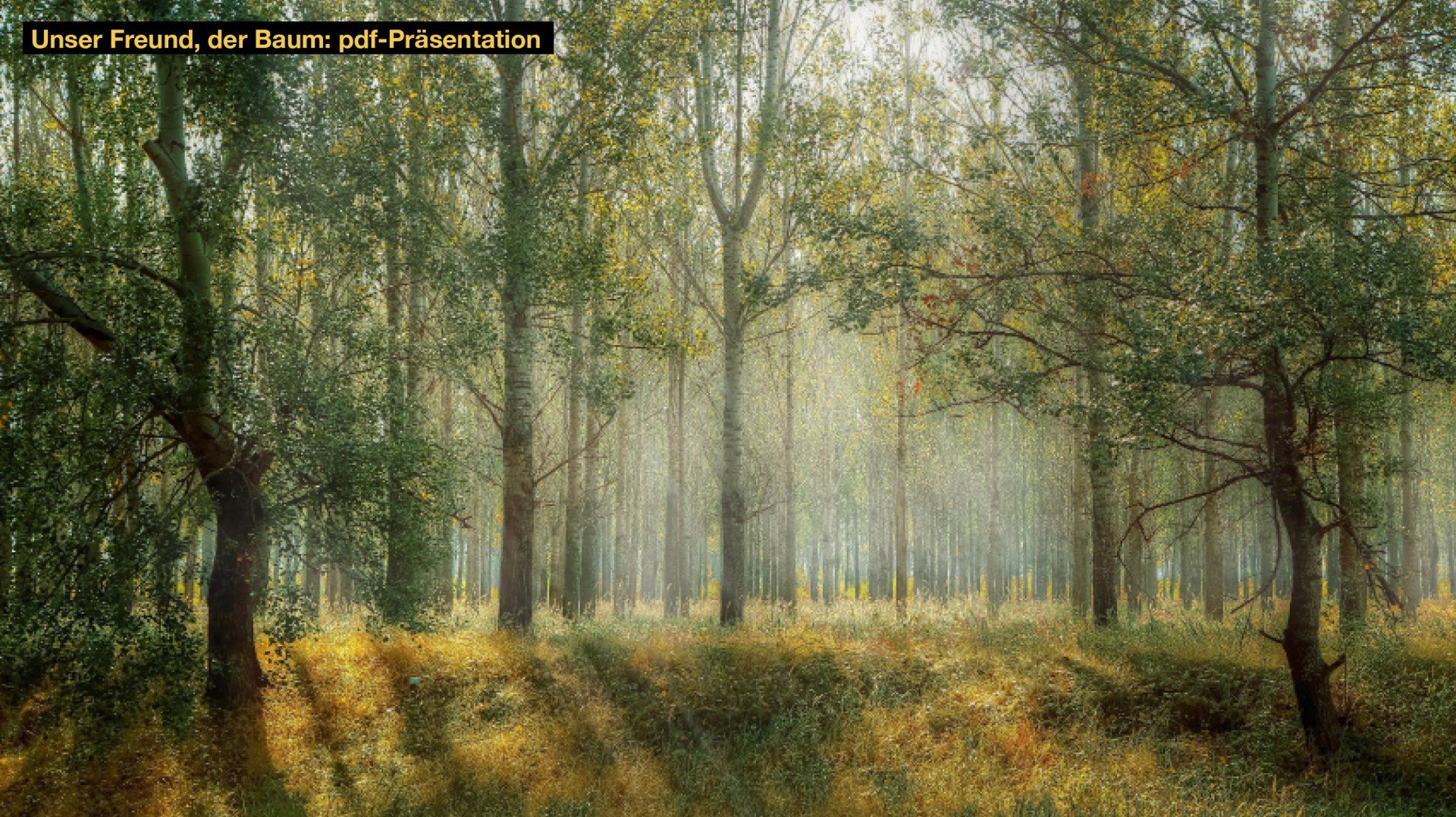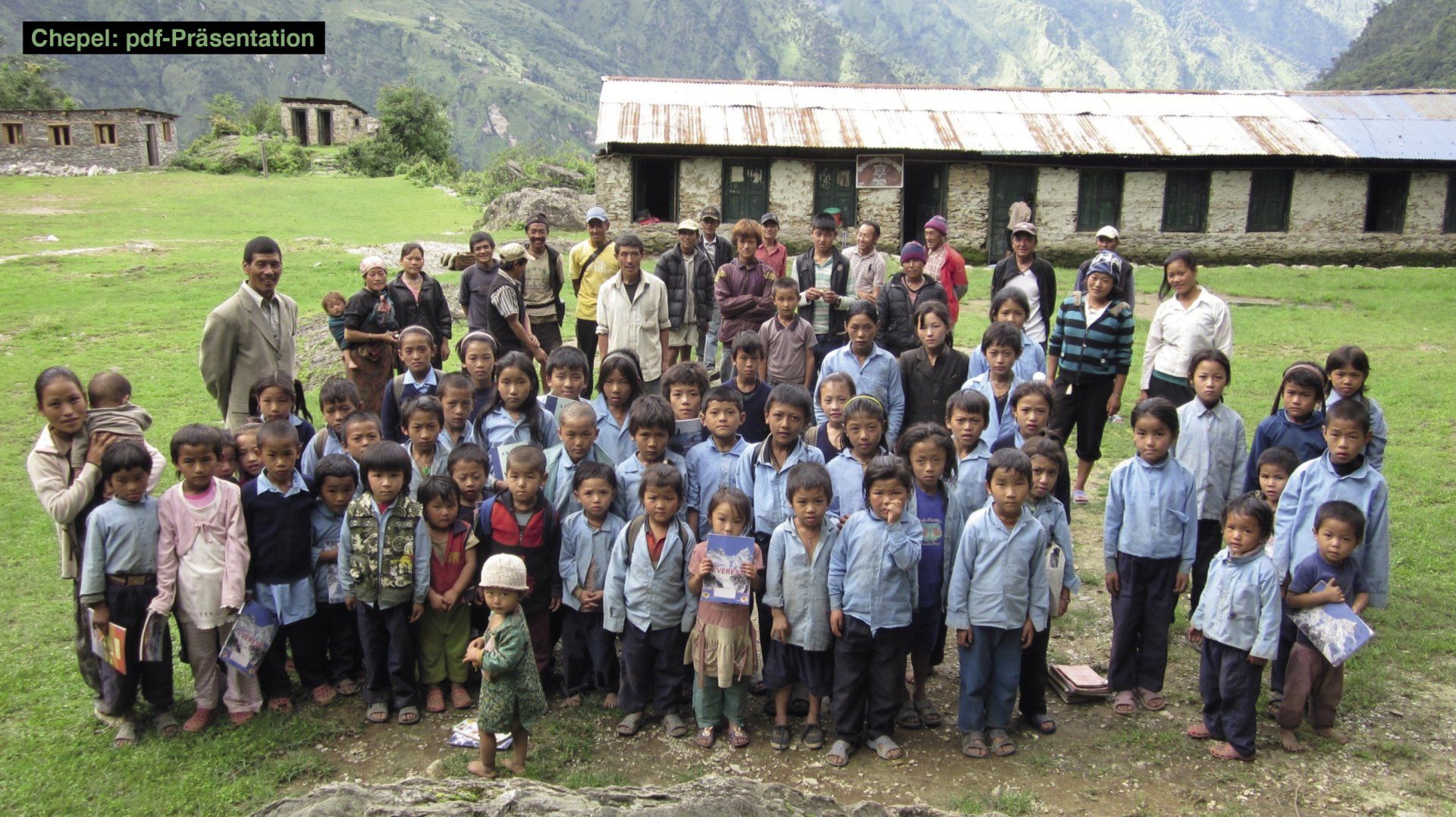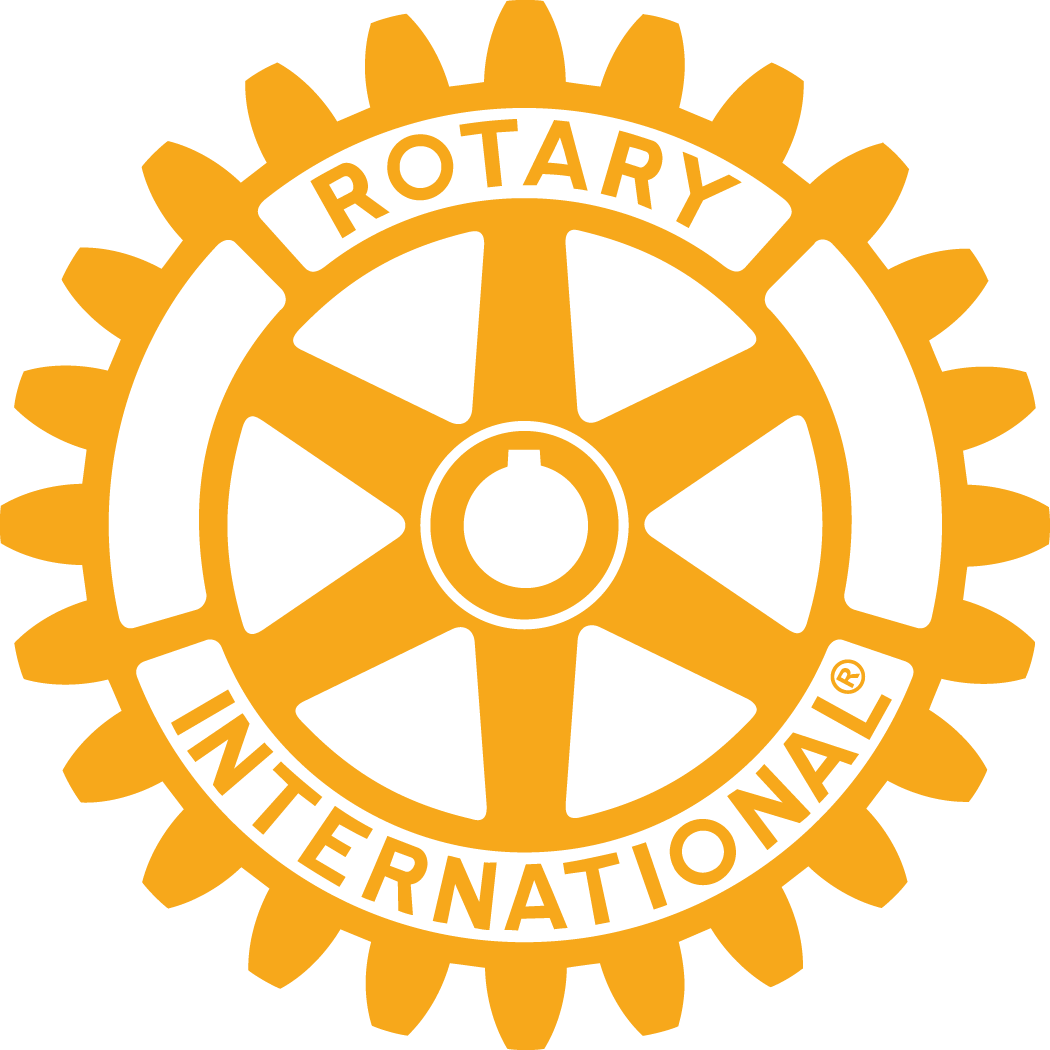2024/2025 – 2023/2024 – 2022/2023 – 2021/2022 – 2020/2021
MEETINGS IN THE ROTARY YEAR 2022/2023
IN-PERSON MEETING ON 24 APRIL 2023
Through wild Kazakhstan
A lecture by Axel Weyer
In 2019, our friend Axel Weyer and some friends organized an adventure holiday in Kazakhstan - a hiking experience with tents and horses ... almost at the end of the world! Below is a video with many impressions of this special trip; there is also the option to download the presentation as a PDF.
Download the presentation here!
IN-PERSON MEETING ON 17 APRIL 2023
My development policy volunteer service in Argentina
A lecture by Ceyda Erol
Ceyda Erol is 23 years old and studies social work in Darmstadt. She has also been working as a volunteer for the "Auszeit" association for 5 years and for the youth development department of the city of Rüsselsheim since 2021. From August 2023, Ceyda will be working for 12 months in a development policy volunteer service in Córdoba, Argentina. The program is called "weltwärts" and encourages young people to work for the goals of sustainable development. Volunteering also involves costs: The program includes her travel expenses, accommodation and meals, a comprehensive insurance package, monthly pocket money and educational support from Ceyda's sending organization "Experiment e. V.". The Federal Ministry for Economic Cooperation and Development (BMZ) covers 75% of the program costs. "Experiment e. V." can only close the remaining funding gap with the active support of Ceyda Erol and with donations that Ceyda has to actively collect.
Download the presentation by clicking on the image.
IN-PERSON MEETING ON 31 OCTOBER 2022
Literature tour 2022
A lecture by Frank Heckert
The following books were presented:
• Jürgen Dollase – Gluttony
• Eckhart Nickel – Spitzweg
• Louise Nealon – Snowflake
• Herbert Heckmann – My Grandfather’s Grief
• Reinhard Kaiser-Mühlecker – poacher
• Christian Baron – The night is beautiful
• Gianfranco Calligarich – The last summer in the city
• Lydia Sandgren – Collected Works
• Steven Uhly – Die Summe des Ganzen
• Andreas Pflüger – Ritchie Girl
• Alex Schulmann – Burn all my letters
• Ian McEwan – Lessons
• Claire Keegan – Little Things Like This
• Irene Solà – When I sing, the mountains dance
• Harald Jähner – High Altitude
• Fatma Aydemir – Dschinns
• Ralf Rothmann – The Night Under the Snow
IN-PERSON MEETING ON 10 OCTOBER 2022
Bitcoin – currency with a future?
A lecture by Sebastian Markowsky
Sebastian Markowsky also deals with the "Future of Digital Money" professionally and presents us with an "Introduction to Bitcoin". After a personal introduction, he explains in detail the basics and development of Bitcoin - an asset in a decentralized
Network that was launched on January 3, 2009 as a "peer-to-peer electronic cash system" with new technology (blockchain). Myths and truths about Bitcoin, but also a comparison with gold and cash payments are discussed in lively fashion; the future of Bitcoin is not without controversy among the listeners.
Download the presentation by clicking on the image.
IN-PERSON MEETING ON SEPTEMBER 5, 2022
Erl and Salzburg – Impressions of a festival trip
A lecture by Bernd Blisch
Our friend Bernd Blisch took us on a very special festival trip - Erl in the Inn Valley and to Salzburg. The Passion Play in the small town of Erl has been performed since 1613, the Passion Play House dates back to 1959. Since 2012, operas have also been performed in the Festival House built next door and financed by the Haselstein couple - this impressive house with outbuildings has been directed by Bernd Löbe as artistic director since 2019. The Salzburg Festival has a tradition dating back to 1920, although from the very beginning they wanted to distance themselves from the concept of the Bayreuth Festival ("Wagner") and were open to modernity ("Jedermann").
Download the presentation by clicking on the image.
MEETINGS IN THE ROTARY YEAR 2021/2022
OFFSITE MEETING ON 13 JUNE 2022:
The old Opel race track
An information event with Jürgen Pawolka and Carsten Ritter from the “Initiative for Cultural Monuments at the Opel Racetrack”.
In the 1920s, up to 50,000 people made the pilgrimage to the south of Rüsselsheim to see daredevil men in their fast cars on the Opel race track. The Opel race track is a former race track that was built by Adam Opel AG in 1919 in a forest about two kilometers south of Rüsselsheim at Schönauer Hof. Due to its oval design, a track width of twelve meters and the high banked curves, it was considered the fastest race track in Europe in the 1920s. Average speeds of up to 140 km/h were possible. After the Second World War, the track was forgotten. We set out and rediscovered the race track, accompanied by Jürgen Pawolka and Carsten Ritter, members of the "Opel Race Track Cultural Monument Initiative".
Links to further interesting information about the Opel race track:
MEETING VOM 30.MAI 2022:
Bernd Wegener's vintage car collection
Our friend Bernd Wegener presented part of his impressive vintage car collection to the club in a hall in Nierstein. He introduced the 20 or so vehicles and reported that he has enjoyed restoring and repairing vintage cars himself since his student days. He has fulfilled a dream from his early years by displaying his collection in a specially built hall with a lifting platform and workshop equipment. His expert advice is now even sought after by the neighboring master mechanic! With anecdotes and stories about driving, collecting, tinkering and restoring, he gave us an insight into his hobby, which he clearly enjoys greatly. A wine tasting with explanations from the winemaker Wedekind and a delicious snack provided by his friend Eisenacher, as always, rounded off the evening.
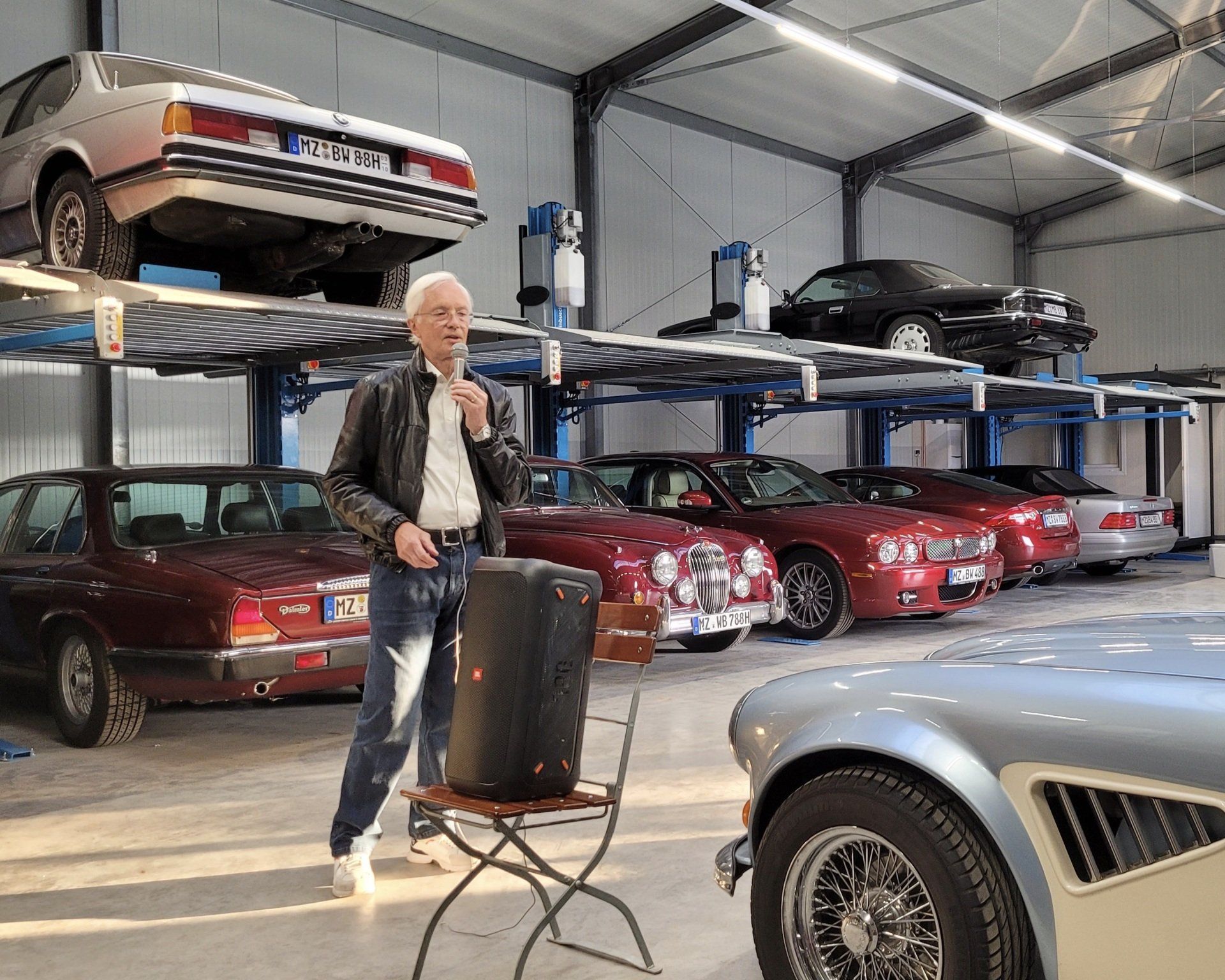
Image title
Untertitel hier einfügenButton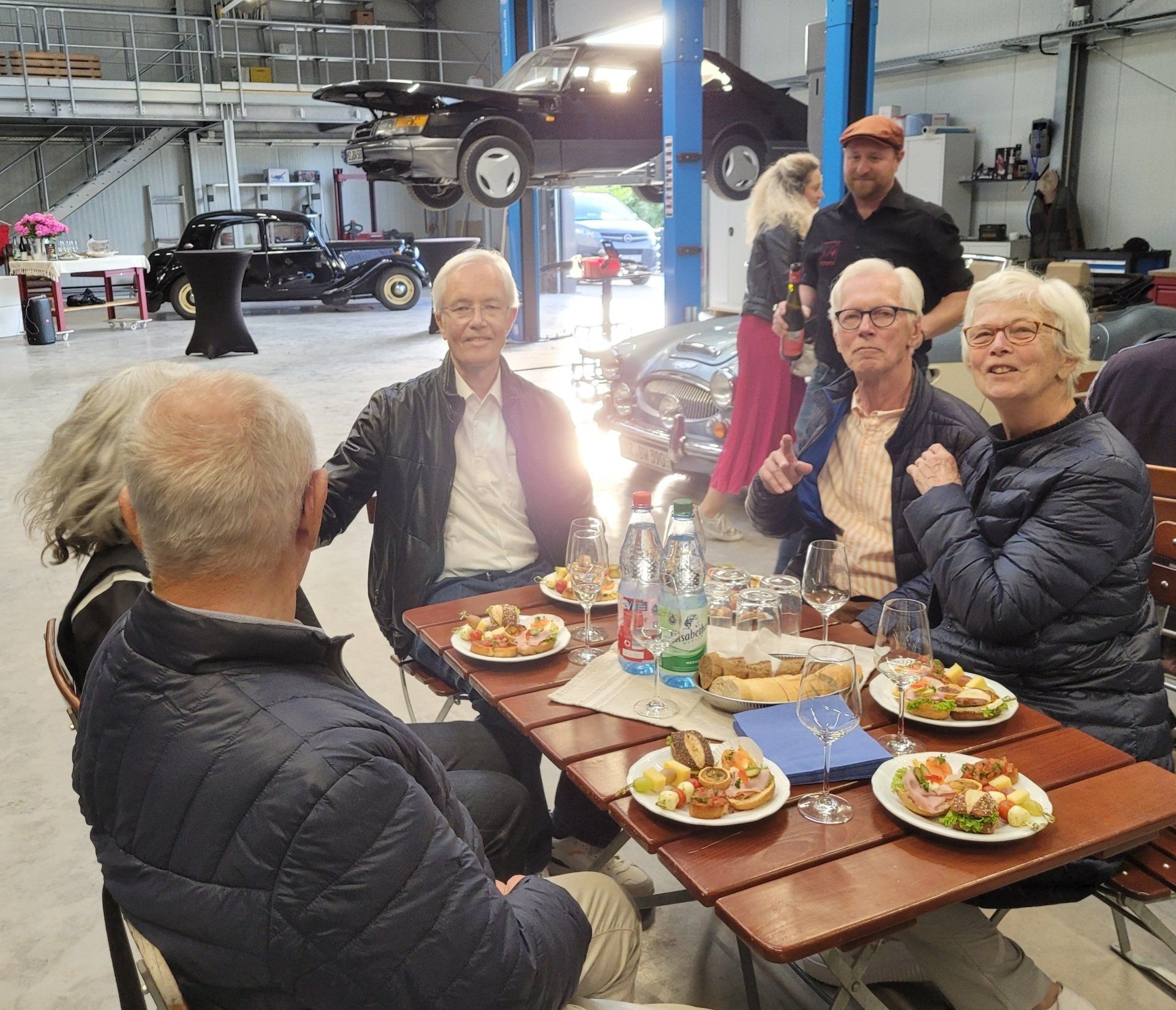
Image title
Untertitel hier einfügenButton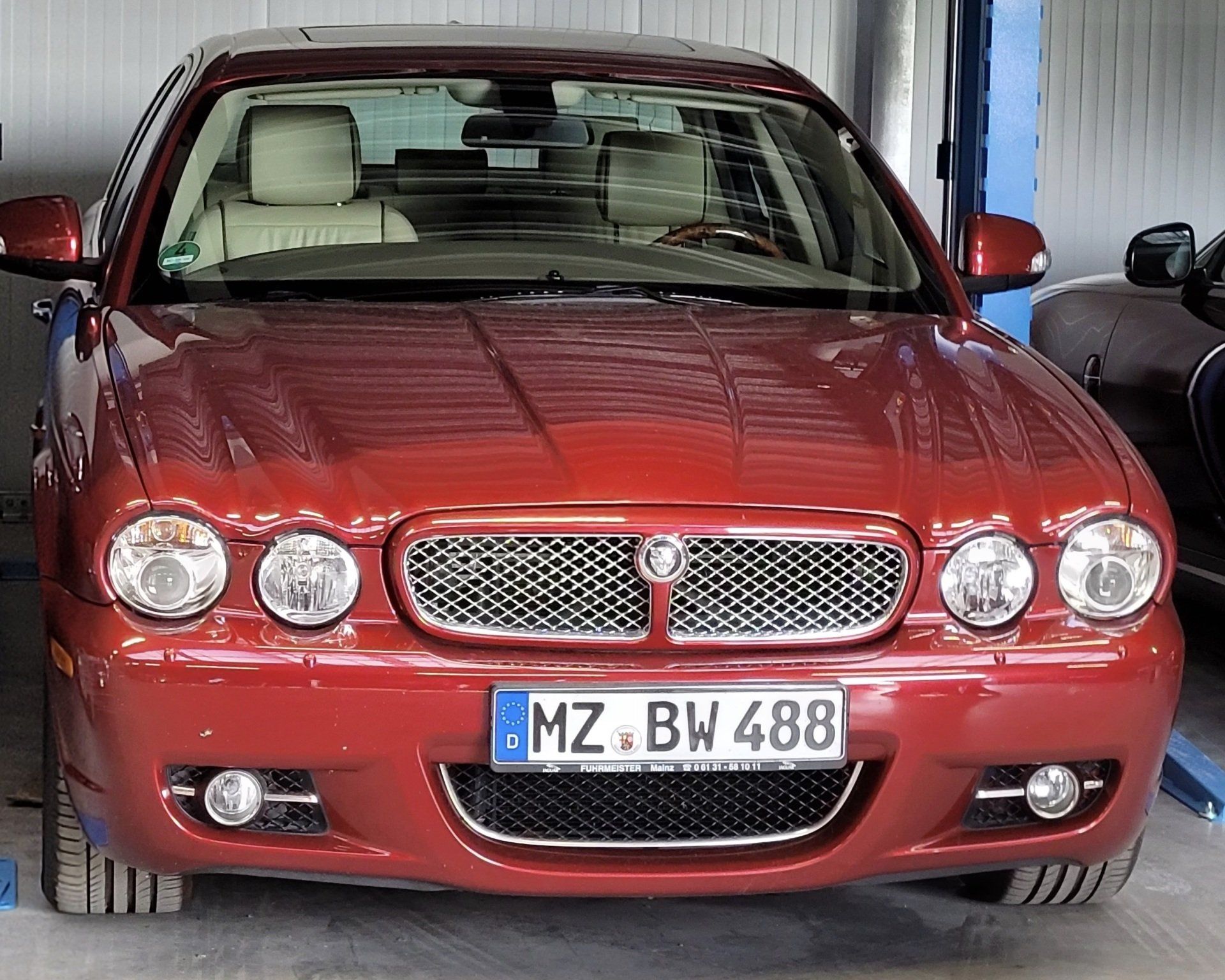
Image title
Untertitel hier einfügenButton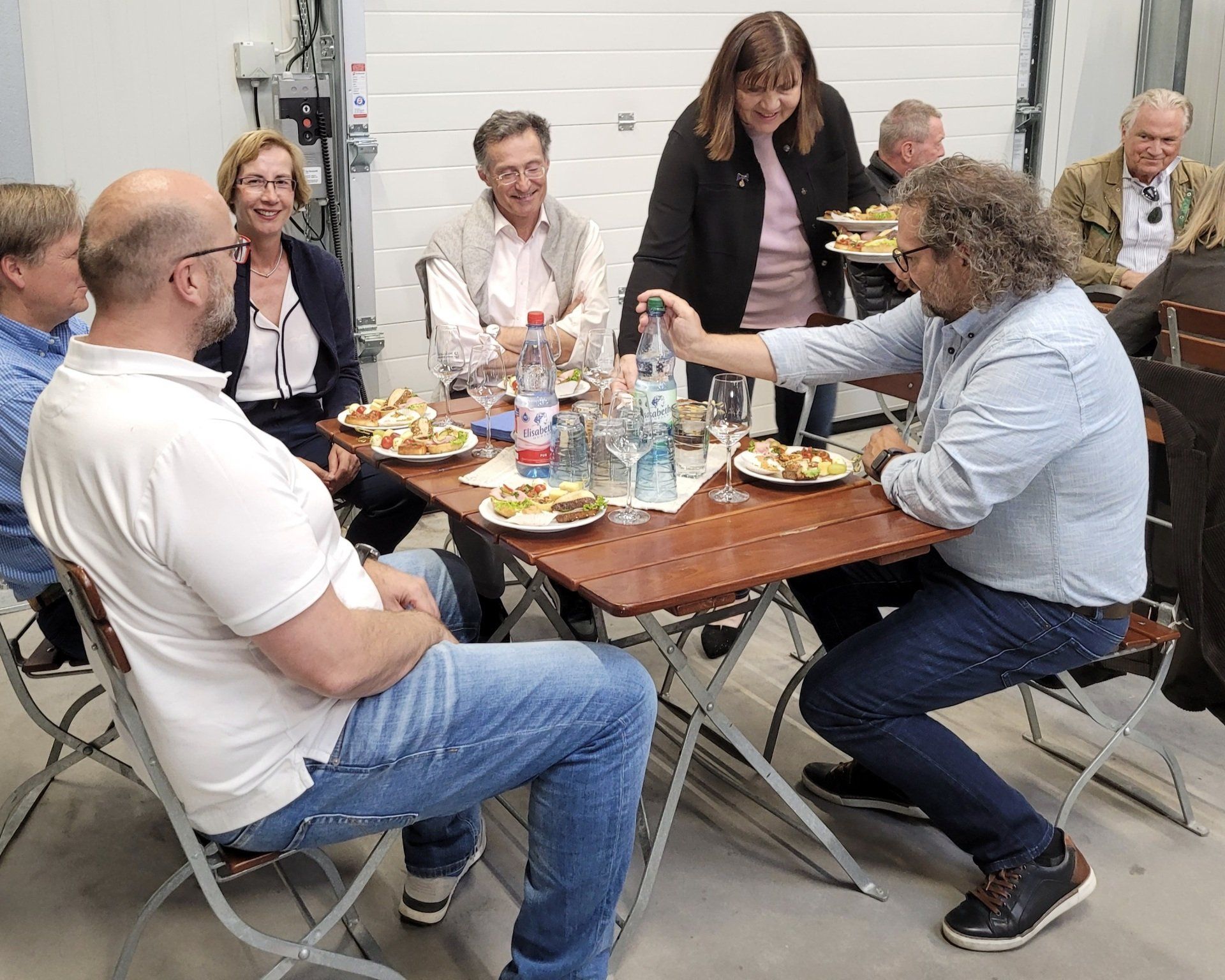
Image title
Untertitel hier einfügenButton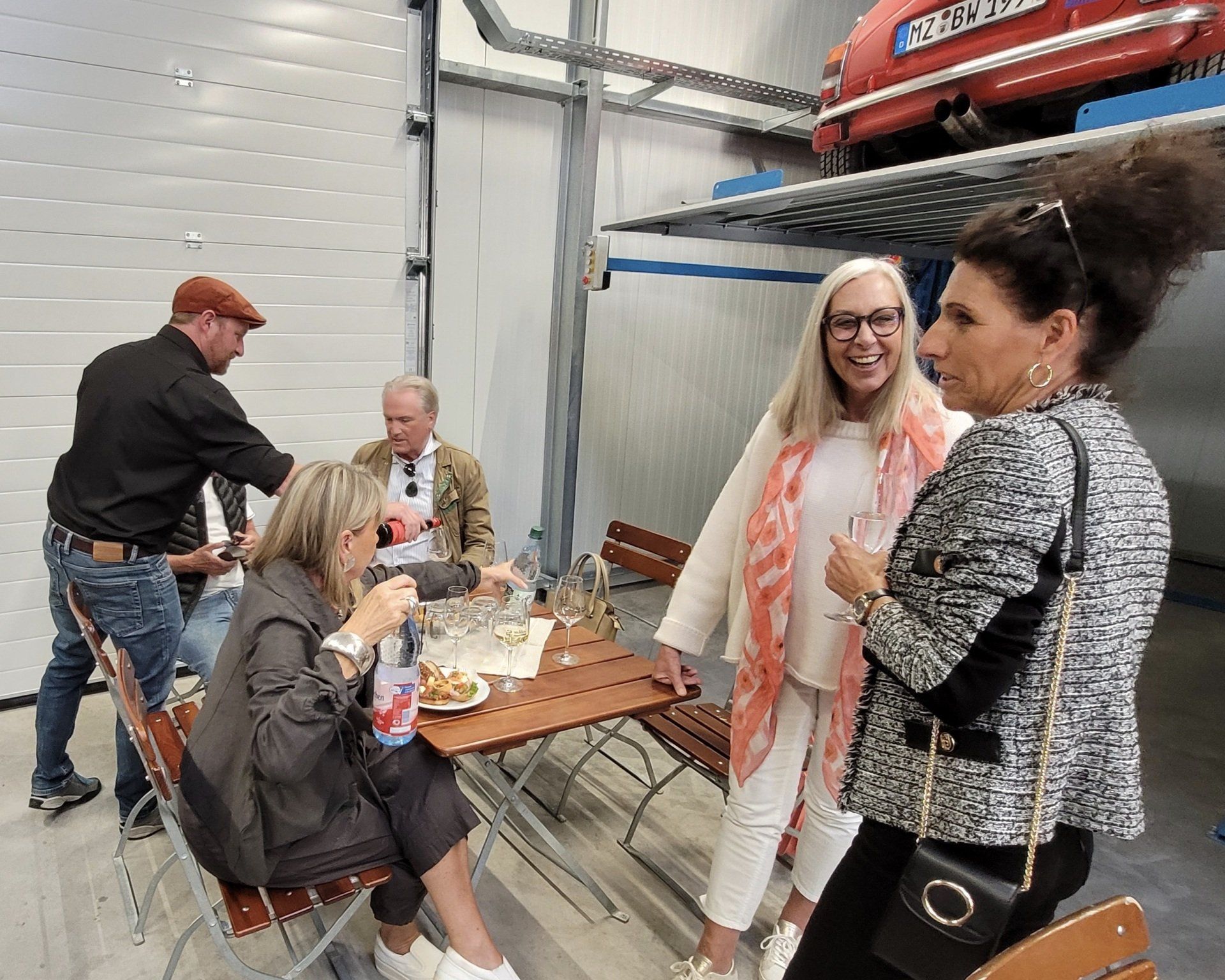
Image title
Untertitel hier einfügenButton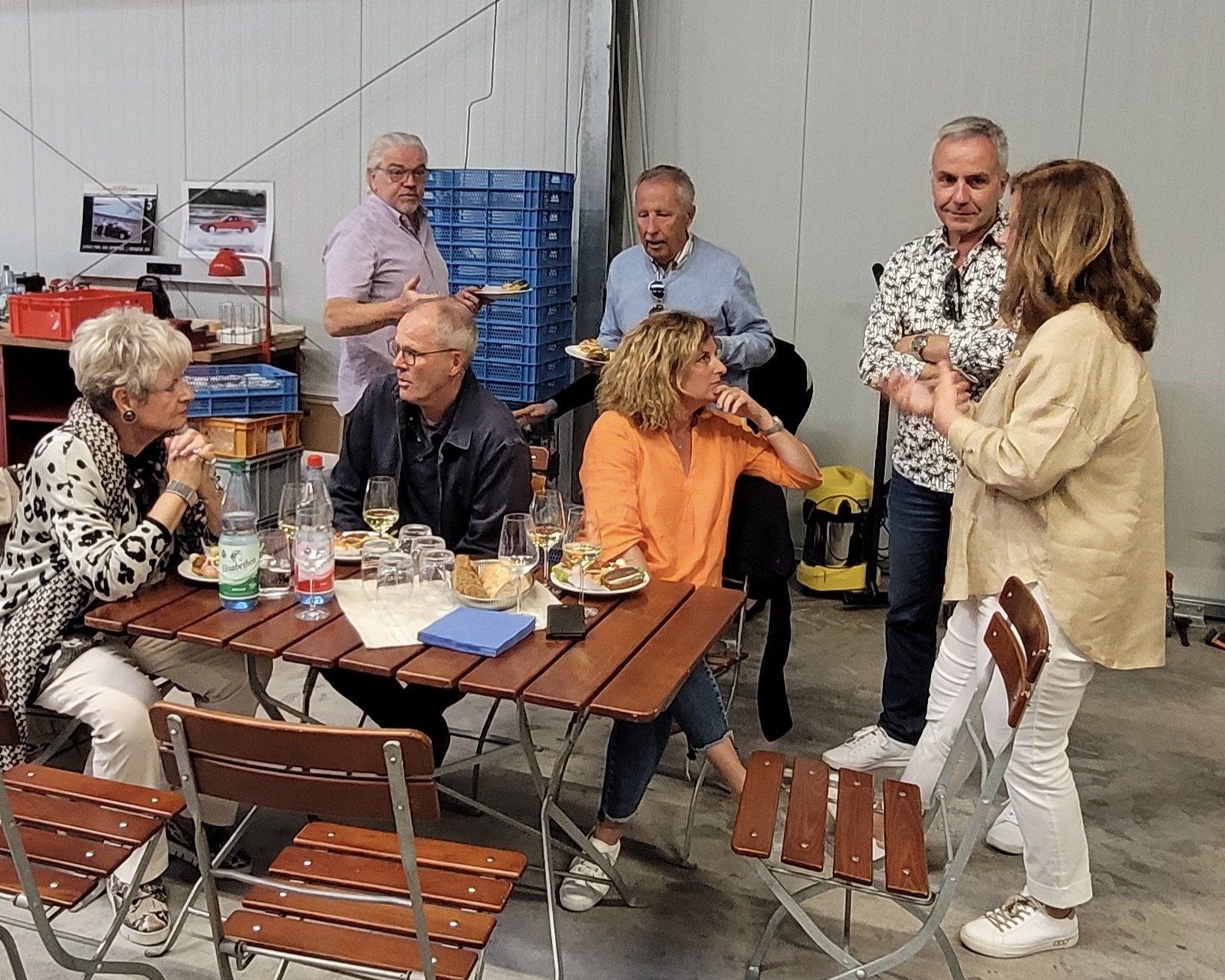
Image title
Untertitel hier einfügenButton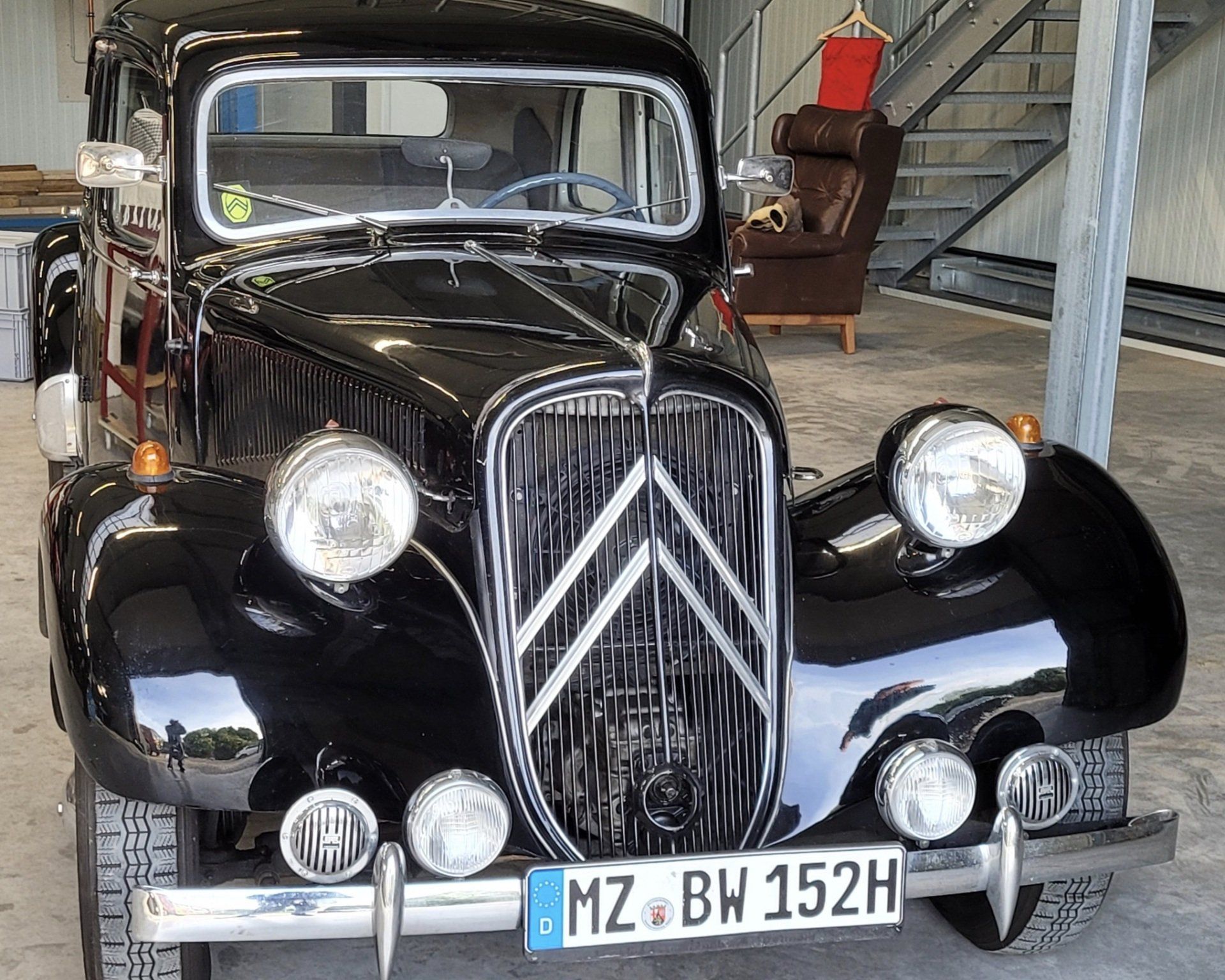
Image title
Untertitel hier einfügenButton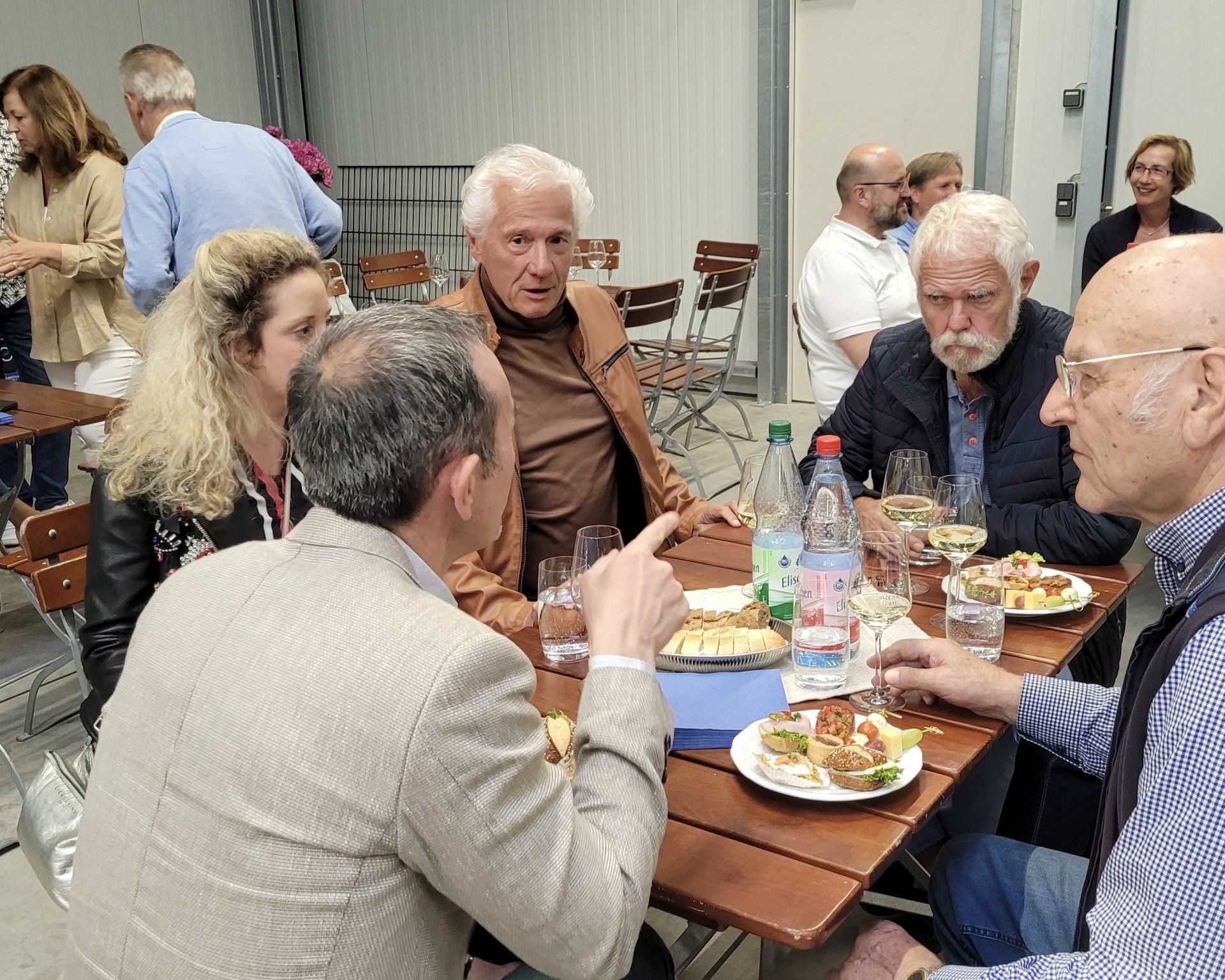
Image title
Untertitel hier einfügenButton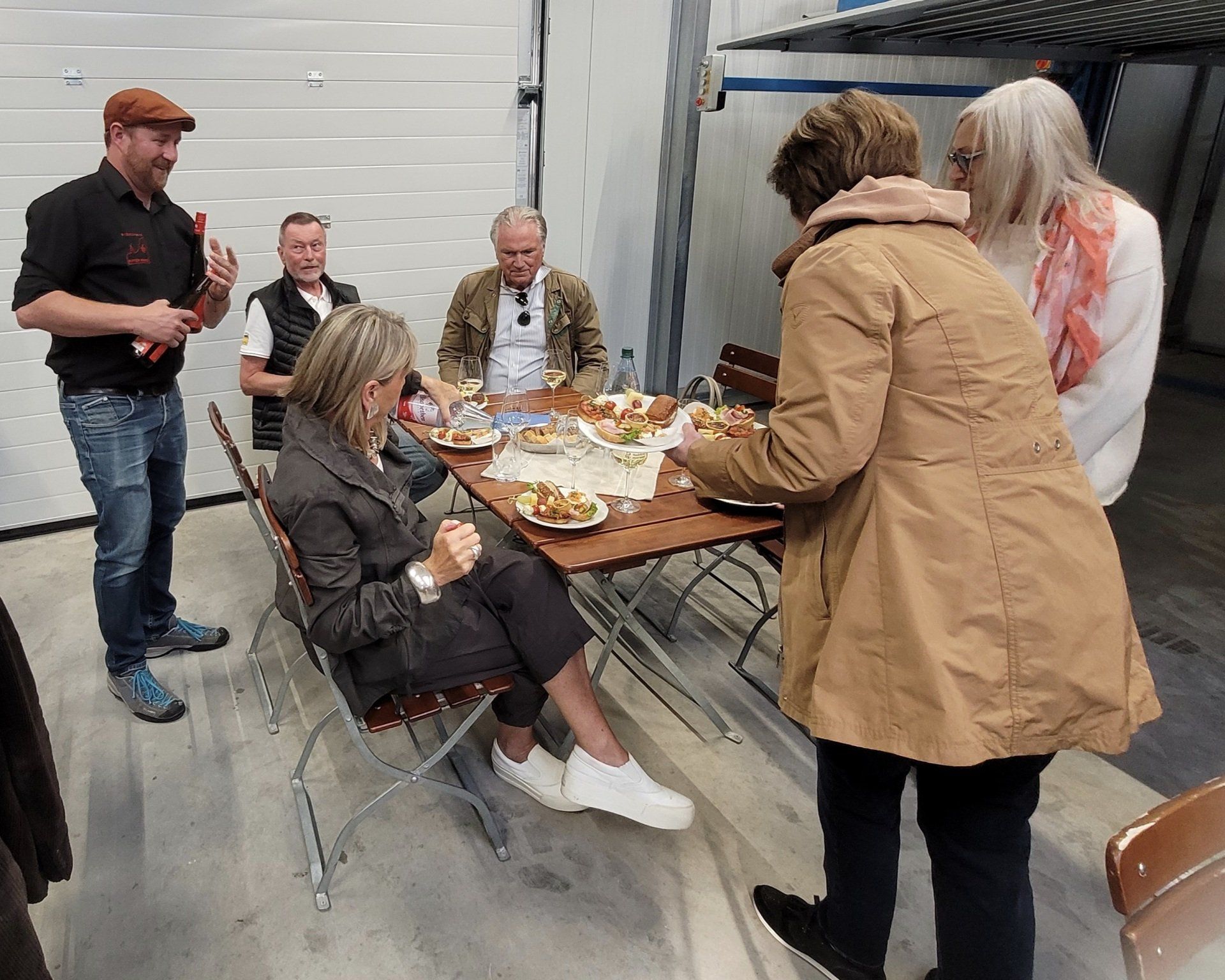
Image title
Untertitel hier einfügenButton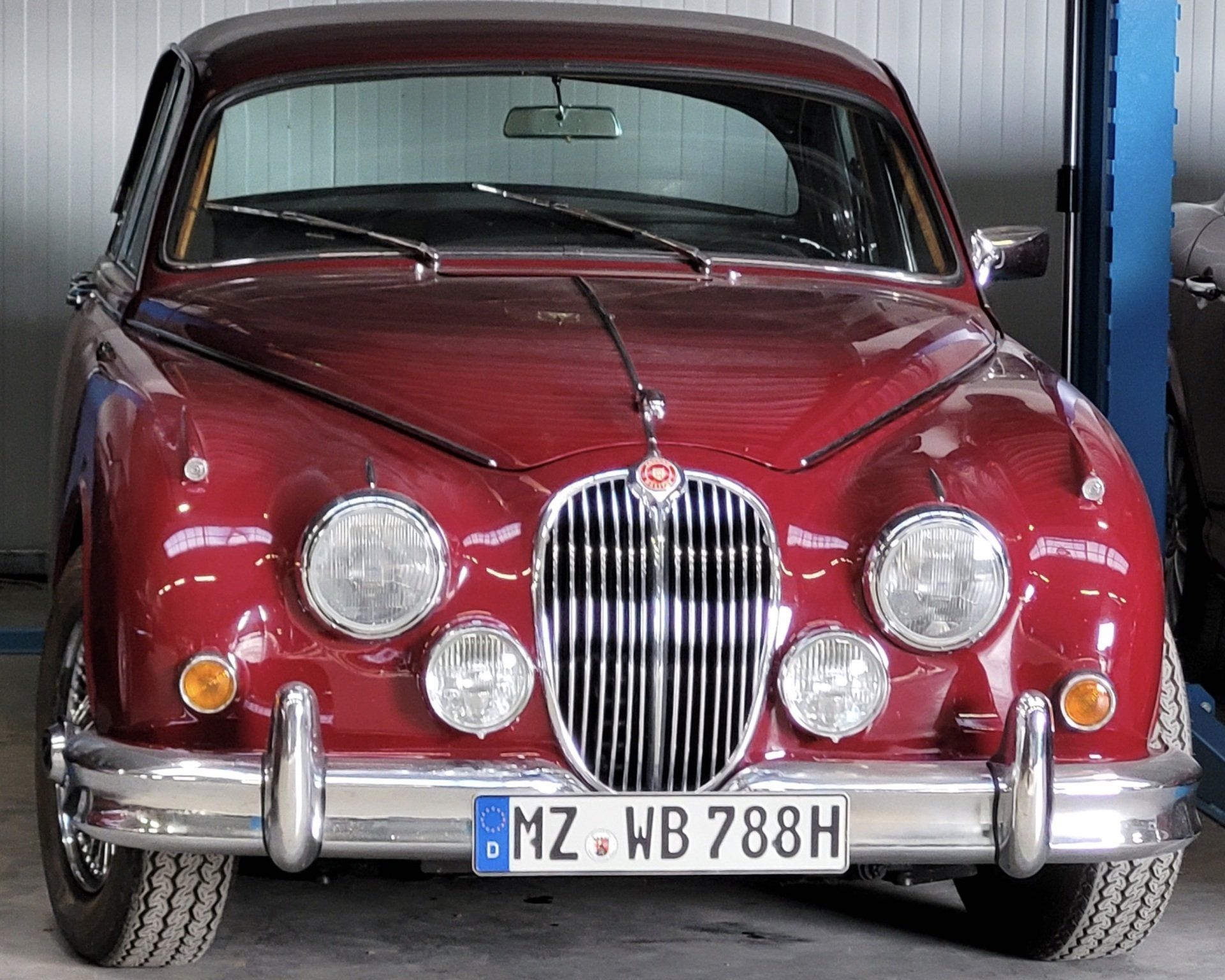
Image title
Untertitel hier einfügenButton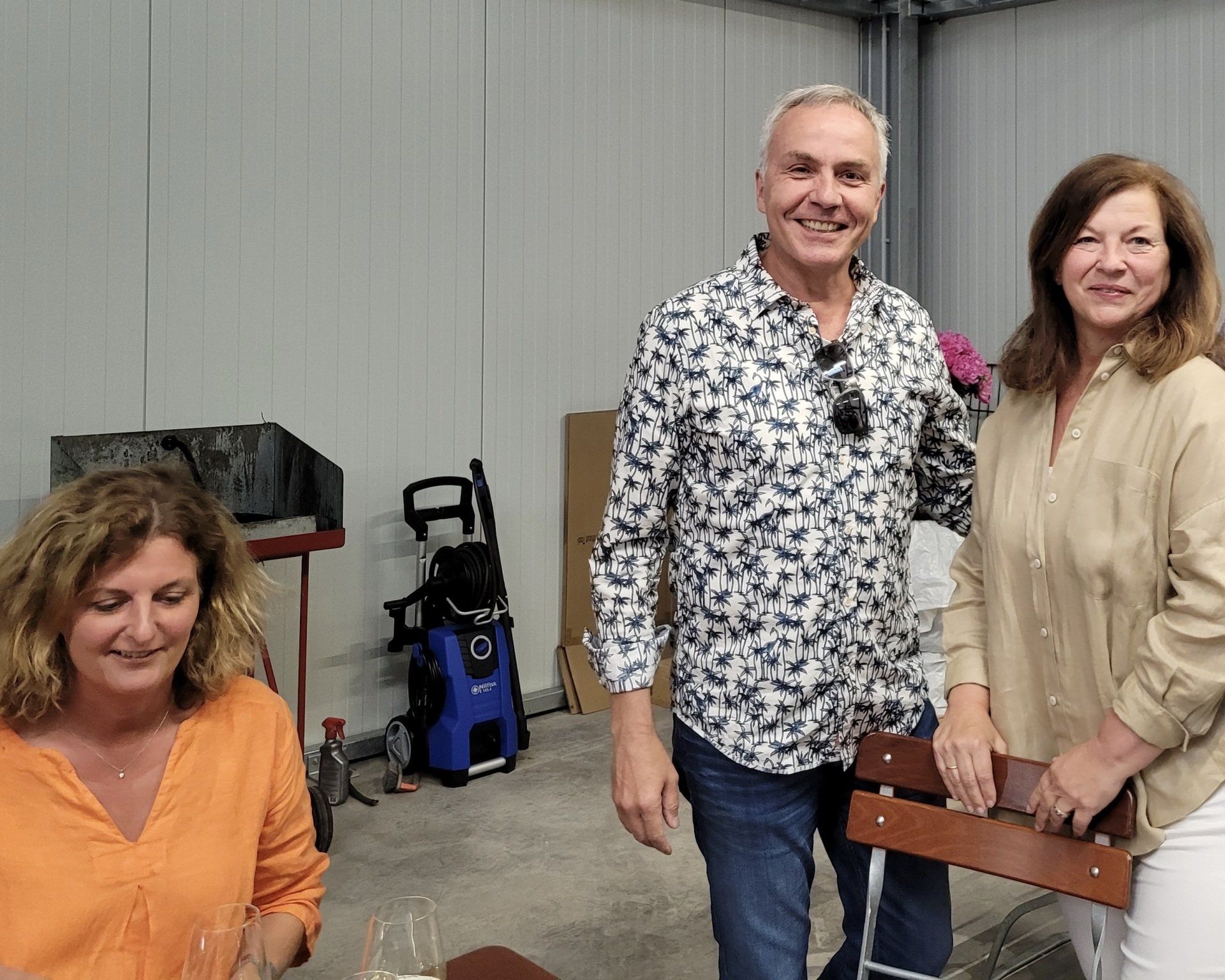
Image title
Untertitel hier einfügenButton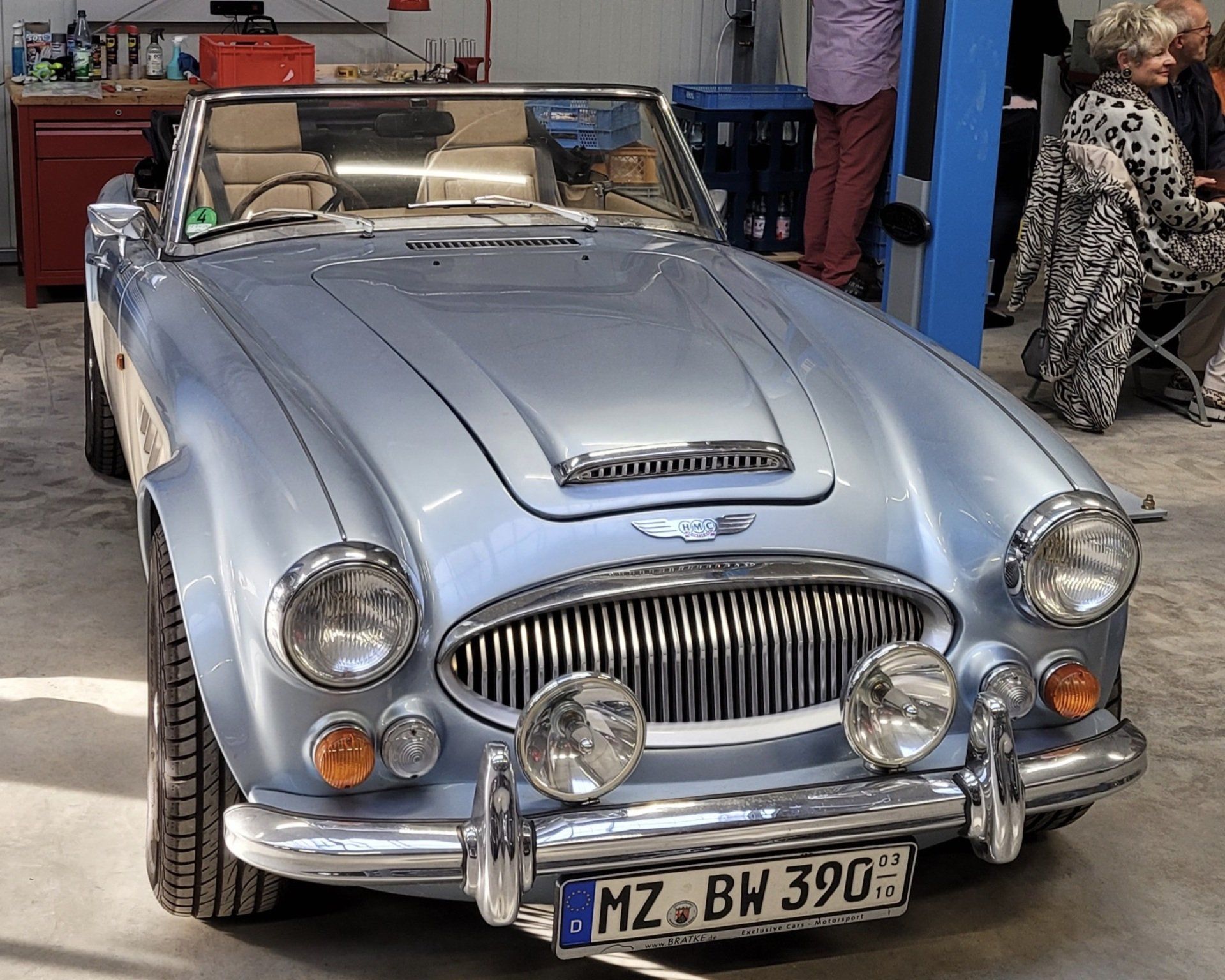
Image title
Untertitel hier einfügenButton
MEETINGS FROM 25 APRIL 2022 / 2 MAY 2022:
Our motorhome trip to Iberia
A lecture by Erhard Jacobi
MEETING OF 7 MARCH 2022:
The new EDEKA Boßler market in Rüsselsheim-Königstädten
Visit to the workplace two days before the reopening
ZOOM MEETING FROM 14 FEBRUARY 2022:
The animal welfare organization “Animals' Angels”
A lecture by Sven Strobel, deputy chairman of “Animals' Angels”
Animals' Angels is an animal welfare organization based in Frankfurt am Main. Its commitment is to so-called "farm animals" and the main focus is on protecting animals during transport. Animals' Angels is calling for, among other things, the abolition of long-distance animal transport. To achieve this, the organization wants to ensure that animal transport at least complies with current law.
ZOOM MEETING FROM 7 FEBRUARY 2022:
How Flörsheim got its forest
A lecture by Bernd Blisch, Mayor of the City of Flörsheim
ZOOM MEETING ON 13 DECEMBER 2021:
The current situation in the Ahr Valley after the flood disaster
With Achim Fischer, Rotary Club Bad Neuenahr-Ahrweiler
ZOOM MEETING ON NOVEMBER 29, 2021:
The workshops for the disabled
A lecture by Steffen Walther, Head of Press and Public Relations at WfB Rhein-Main eV
MEETING OF 15 NOVEMBER 2021:
India from my perspective
A lecture by Erhard Jacobi
MEETING OF 25 OCTOBER 2021:
Literature tour 2021
A lecture by Frank Heckert
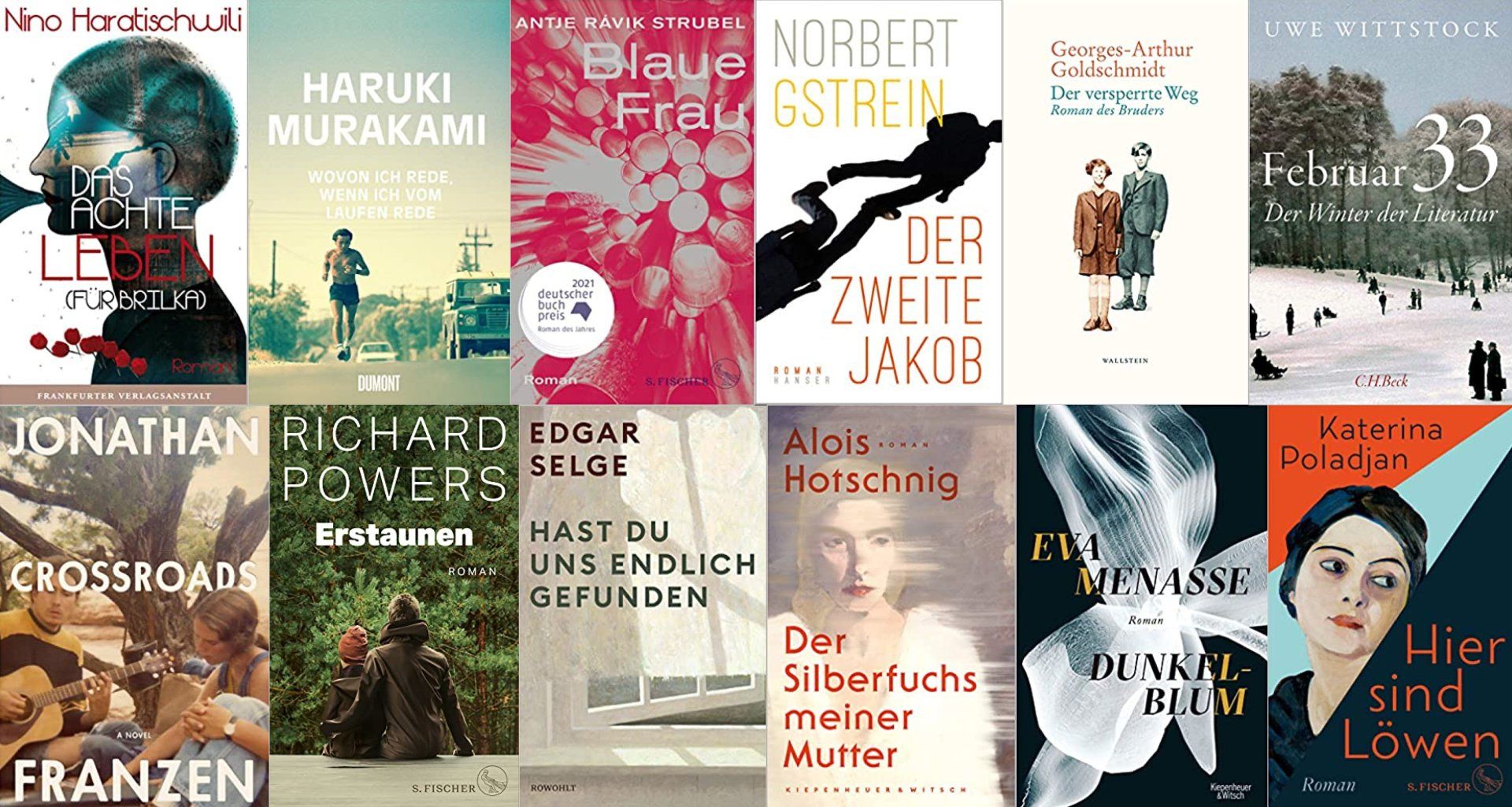
MEETING OF 18 OCTOBER 2021:
“Racing the planet”: My 250 km ultramarathon through Georgia
A lecture by Isabelle Buschulte
MEETING OF 6 SEPTEMBER 2021:
“Memories are like geysers”
A reading by Dagmar von Trützschler
When the professor emeritus takes a seat at the VIP table next to Nora van Berg, he has no idea what an exciting Danube cruise lies ahead of him. The two grow closer and a spark begins to develop between them. But why Nora keeps talking about her geysers remains a mystery to him for a long time. But the psychologist is pursuing a very specific plan. A travel novel with psychological depth that makes you want to go on a river cruise. At the same time, a journey back in time to the society of the 1968s and to a childhood love.
Dagmar Trützschler von Falkenstein grew up on the Middle Rhine and has a doctorate in linguistics. She studied psychology, philosophy and English. She then completed a teaching degree. She worked in adult education and educational research at universities in several federal states. Today she is enjoying retirement with her husband in a tranquil wine-growing town in Rheinhessen.
MEETING OF 12 JULY 2021:
Chat meeting and joy of reunion at “Schaab Louis”
MEETING OF 5 JULY 2021:
Better the usual misery than the unknown happiness
A lecture by Burkhard Gross
Many people are temporarily or permanently dissatisfied. In this lecture, Burkhard Gross explains how those affected can deal with such
How people usually deal with dissatisfaction or the resulting problems and how beliefs, habits and social norms prevent them from solving the problems. The speaker gives a brief insight into his work as a health coach and shows examples of solutions from his consulting practice.
MEETINGS IN THE ROTARY YEAR 2020/2021
MEETING OF 14 JUNE 2021:
Aviation in transition
A lecture by Dr. Matthias Zieschang, Chief Financial Officer of Fraport
International air traffic has grown without interruption for 60 years. Various mega-trends indicate that this growth will continue in the future. Nevertheless, many airlines have not been able to generate adequate profits. Dr. Matthias Zieschang, Executive Board Member for Controlling and Finance at Fraport AG, explained this apparent paradox - permanent passenger growth on the one hand and sustained losses on the other - in more detail. He has headed Fraport's finance department since April 2007 and had to overcome the corona pandemic, by far the biggest crisis in Fraport's corporate history.
The Corona pandemic has also had a substantial impact on air traffic. In the second part of his presentation, the speaker will show what consequences the Corona pandemic could have for both airlines and airports. At the end, there are ten theses on how the aviation industry will develop.
MEETING OF 7 JUNE 2021:
The Theresianum Gymnasium in Mainz
A lecture by Ulrike Pitzen-Fischer and senior teacher Stefan Caspari
The Theresianum is a high school in the diocese of Mainz that is facing changes in the school landscape in general and wants to take these changes into account. For this reason, the school began a school development process in 2019 with the vision of a "House of Learning". The "House of Learning" is based on the balanced division of learning and working into cooperative, guided and individualized teaching units, and on the use of functional rooms, so-called learning landscapes. This type of school sees both elements as trend-setting in order to make students fit for the demands of the working world of the 21st century.
MEETING VOM 31. MAY 2021:
“How have you liked the Anthropocene so far?”
A book presentation by Frank Heckert
The lecture focuses on the first non-fiction book by the American bestselling author John Green, who has made a name for himself by publishing books for young people. In "How have you liked the Anthropocene so far?" Green writes inspiring reviews of human history - for example, he talks about keyboards, but also about hot dogs and the beauty of the sunset. All very readable and enlightening.
In an exciting way, the author connects his own life with the big questions of humanity: What does a teddy bear have to do with power and helplessness, or Googling with our finiteness? With his eye for the strange, the important and the surprising, John Green rates the man-made present on a scale of 1 to 5.
MEETING VOM 17. MAY 2021:
Prostheses for a new life: the ProUganda initiative
A lecture by Karsten Schulz
Lack of funds for prostheses and orthoses - and no prospect of help: For us Germans with a functioning health care system, this scenario is unimaginable. But in Uganda, one of the poorest countries in the world and also a war zone, there is great need. "Pro Uganda" is a German, non-profit organization from Hesse. Its aim is to give amputees in Uganda a new quality of life through a prosthesis. With a competent team - consisting of trained orthopedic technicians, volunteers, as well as friends, acquaintances and supporters - the organization helps the population to build prostheses.
Here are the films shown in the meeting recording in better quality (without jerking):
MEETING VOM 10.MAI 2021:
One Million Trees
A lecture by Ieva Martinsone, Rotaract
Global reforestation would be possible on an area of 0.9 billion hectares and could absorb two thirds of man-made CO2 emissions. This would be an effective way to reduce carbon in the atmosphere. This is the conclusion of a study by ETH Zurich recently published in Science. Ieva Martinsone from Rotaract reports on the reforestation project "One Million Trees".
MEETING VOM 3.MAI 2021:
The Alpbach Forum
A lecture by Nadine Meichsner
Nadine Meichsner, the daughter of Inge Meichsner, works voluntarily at the Forum Alpbach in Germany. The Forum is an independent non-profit association that discusses current topics from science, business and politics worldwide in order to contribute to a united Europe. The European Forum Alpbach has been held every August in the Tyrolean mountain village of Alpbach since 1945. Speakers and participants from all parts of the world, from science, business and politics to art and culture, come together to discuss current issues of the day and find interdisciplinary solutions.
MEETING OF 26 APRIL 2021:
Our club turns children into tree explorers
A lecture by Markus Ornau and Frank Heckert
Our club cooperates with the WWF and is currently donating 40 WWF tree discovery sets worth a total of 5,000 euros to daycare centers in the area. This project was the focus of the meeting, but also provided the impetus for further information on the topic of "trees", which Markus Ornau presented. The presentation is available as a PDF.
Download presentation (pdf) by clicking on the image above...
Markus Ornau also showed the following video of the planting of the first “Tree of the Year” in Germany:
He also presented a video clip introducing the WWF's "Tree Discoverer" concept before Frank Heckert informed us about the elements of our mailing and gave an update on the current status of the project. 153 daycare centers in Rüsselsheim, Nauheim, Raunheim, Flörsheim, Bischofsheim, Ginsheim-Gustavsburg, Groß-Gerau, Hochheim, Mörfelden, Trebur and Riedstadt received mail from our club. Content: Our offer to apply to be a "Tree Discoverer". As part of a cooperation with the WWF, our club is now donating 40 WWF Tree Discoverer sets worth a total of 5,000 euros to daycare centers in the area. Each daycare center has the chance to win two sets - and can apply on the WWF website. All participants will be notified of the result of the draw by email by the end of May; they can then take part in a 45-minute online workshop to get to know the sets in detail. We are excited about the response and wish all the daycare centers we contacted good luck!
MEETING OF 19 APRIL 2021:
News from Chepel
A lecture by Isabelle Buschulte
Presentation of two exciting projects with "expansion opportunities": A three-year project for sustainable village development with a focus on animal health, infrastructure, entrepreneurship and agriculture. And a WHO project on water quality and hygiene measures. Both activities fit perfectly into the Corona situation that is currently prevailing in Nepal.
Download presentation (pdf) by clicking on the image ...
MEETING OF 12 APRIL 2021:
Venice – 1600 years of beauty before its downfall
A lecture by Bernhard von Dadelsen
According to legend, 1,600 years ago, on March 25, 421, at 12 noon, the foundation stone for the church of San Giacomo was laid on the lagoon island of Rialto. This was the beginning of the Venetian statehood and the birth of Venice. 1,600 years later, Venice can look back on a turbulent history. Huge cruise ships push past St. Mark's Square, 100,000 day-trippers flood the island city. This makes the residents angry. "No grandi navi!" - "No cruise giants!" they shout and organize themselves into citizens' initiatives. The bow waves of the ships shake Venice's foundations more than any flood. The title of "UNESCO World Heritage Site" is already threatened with being withdrawn. In the documentary "Venice, threatened beauty", ZDF producer and author Bernhard von Dadelsen describes the current situation in the city in an impressive way. The film explores the island's secret, going on a boat trip with Venetians early in the morning. Then Venice shines golden as it has for 1000 years. And when evening falls and the guests disappear as if in an instant, the Venice of old families, craftsmen, artists and lovers tempts.
MEETING OF 8 MARCH 2021:
Nutrition of the future
A lecture by Prof. Dr. Guido Ritter
Only 30 harvests left, and by 2050, ten billion people will have to be fed. The situation will become particularly critical when it comes to protein supplies. What alternatives will we have in the future? Will astronaut food fill our plates? In 2013, the WHO/FAO called for more use of insects as a source of food. But is this a sustainable alternative for us in Germany? Can we even incorporate insects into a healthy and sustainable diet? What hurdles do we have to overcome, what other protein sources do we have available? What might the diet of the future look like and will we enjoy it? Prof. Dr. Guido Ritter examines this exciting topic from various scientific perspectives. He approaches the topic with a foray into the world of taste development and a tasting, and ends with a surprise menu suggestion for the year 2030.
MEETING OF 22 FEBRUARY 2021:
Motorworld Manufactory Rüsselsheim
A lecture by Maximilian Dünkel
The old Opel factory in Rüsselsheim has been lying idle for around 20 years. The ACTIV Group, as the project developer of the factory site, wants to revitalize the historic ensemble of industrial and administrative buildings, halls, courtyards and open spaces on the site of the old Opel factory with the "Motorworld" project over the next few years. The aim is to create a new, fascinating part of the city center with a high quality of shopping, living and recreation.
MEETING OF 15 FEBRUARY 2021:
Rotary Rose Monday
The event lasted just under 50 minutes - but those 50 minutes were something special. Excellently prepared and moderated by carnival pro Hans Joachim Kunz and his good-humored sidekick Markus Ornau, a virtual rhetorical Rotary fireworks display was set off via Zoom, the likes of which have rarely been seen on the screens of this world. In addition to clips from legends such as Bonewitz, Braun, Neger & Co., there were also five original contributions from members of our club, which you can now watch or see again here. Enjoy!
MEETING OF 8 FEBRUARY 2021:
„Carré Mobility“
A lecture by Franziska Weiser
“Carré Mobility” is the first sustainable and social mobility solution directly in the neighborhood. The digital solution combines a local delivery service with a station-based vehicle sharing and a carpooling solution. Franziska Weiser, founder and managing director of “Carré Mobility”, will soon also be starting a project in Rüsselsheim at Böllenseeplatz.
MEETING OF 25 JANUARY 2021:
Learn online
A lecture by Markus Ornau
Those who want to expand their knowledge can now save themselves the trip to the adult education center. High-quality further education is available on the Internet. You can treat yourself to a private language course via Skype with a native speaker or get free computer science or poetry lessons from elite professors. Markus Ornau has put together an overview of the ever-growing collection of digital information and educational offerings for us. Using programs, media libraries, tools and apps, he gives a few tips on how we can use the Internet as a new school of lifelong learning.
MEETING OF 7 SEPTEMBER 2020:
Learn, help, celebrate – Rotaract!
A lecture by Maxime Knoth
Rotaract brings together young people between the ages of 18 and 30 who share the motto "Learn - Help - Celebrate". More than 3,700 members in over 190 Rotaract clubs across Germany are committed to helping others. Maxime Knoth from the Rotaract Club Rüsselsheim/Groß-Gerau informed the Favorite Hotel Mainz about the main tasks of the youth organization and the challenges of the current times.
MEETING OF 31 AUGUST 2020:
Wunderkind Jacob Collier
A lecture by Frank Heckert
He was just 17 when he published his first self-made multi-instrumental music videos on YouTube. And these weren't just any videos - they were clips whose professional ease astonished even seasoned musicians. Jacob Collier is now 26 and plays with the possibilities of pop, jazz and classical music as if he were casually helping himself to music at the supermarket. You just have to hear (and see!) this man to be believed.
MEETING OF 17 AUGUST 2020:
Corona tests from Rüsselsheim
A presentation by Michael Becker, Sales Director Virotech Diagnostics
The topic of "Corona" took on a whole new meaning in our everyday lives during the 2020 summer holidays. There are fears that a second wave could build up, especially if people behave carelessly during the travel season. It is important to be prepared for this possible situation with sufficient Corona testing capacities in order to get the infection under control as quickly as possible if necessary. The Rüsselsheim-based company Virotech Diagnostics is successfully supporting the fight against the pandemic with research, development and production of Corona tests.
MEETING OF 27 JULY 2020:
The “One Dollar Glasses”
A lecture by Anna Schmidt
According to a study by the WHO, more than 150 million people in the world need glasses but cannot afford them or do not have an optician nearby. The consequences: children cannot learn, adults cannot work and provide for their families. The "one-dollar glasses" are made locally on a simple bending machine. Material costs: around 1 US dollar. The people trained by the organization can live from producing and selling the glasses.


